
10th Installment from Johnny C. Taylor, Jr.’s New Book, Reset SHRM INCLUSION2022 Virtual Conference October 24-26 Highlights from SHRM Fall Conferences Joya Hayes , Director of HR City of Austin State Prescription Drug Legislation Chambers USA Top Labor and Employment Attorneys TM www.HRProfessionalsMagazine.com Volume 12 : Issue 10
EMPLOYERS AND LAWYERS, WORKING TOGETHER
Ogletree Deakins is one of the largest labor and employment law firms representing management in all types of employment-related legal matters. The firm has more than 900 lawyers located in 53 offices across the United States and in Europe, Canada, and Mexico.

Street North
Birmingham, AL 35203 205.328.1900
Memphis, TN
901.767.6160
International Presence. Local Knowledge. www.ogletree.com
MEMPHIS OFFICE International Place, Tower II 6410 Poplar Avenue Suite 300
38119
BIRMINGHAM OFFICE 420 20th
Suite 1900


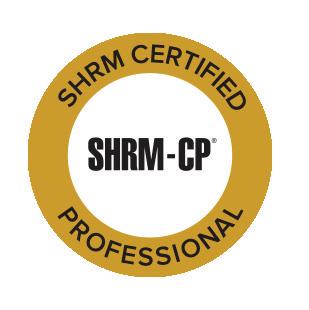


LET’S MAKE SOME BI G CHANGES TOGETHER 221604 Earn your SHRM-CP or SHRM-SCP and move your HR career forward. Time is running out to receive early-bird pricing on exam fees! Apply today to save $75. Early-Bird Pricing $300 SHRM Member* $400 Nonmember Standard Application Pricing $375 SHRM Member* $475 Nonmember *SHRM members save even more! Become a member today and enjoy exclusive benefits. SHRM.co/SHRMMember
90% Pass Rate for HRPM Online SHRM Certification Class
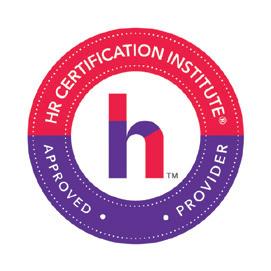
Features
5 note from the editor
Employee Benefits
15 And You Have a Choice in Health Insurance
Industry News
Editor
Cynthia Y. Thompson, MBA, SHRM-SCP, SPHR
Publisher
The Thompson HR Firm, LLC
Art Direction
Park Avenue Design
Contributing Writers
Susan K. Bilbro
Doug Dahl II
David Dufour
Brad Federman
Amy Schabacker Dufrane
Julie Henderson
Tim Keck
Johnny C. Taylor, Jr.
Janie Warner
Carla Willard
6 Profile: Joya Hayes, Director of HR for the City of Austin
8 Meet Chris Cavaliere, President of HR Tampa
13 Purchase Your Copy of RESET from the SHRM Foundation
32 Message from Dale Clinton, Chair 2022 ARSHRM State Conference
40 Meet Shirley Rijkse, President of NCSHM State Council
42 Meet Jeff Luttrell, 2022 NCSHRM Conference Chair
Talent Management and Recruiting
10 Inflation Reduction Act of 2022
12 Redefining the Employee Experience
14 Untapped Talent: Give Second Chance a Second Look
16 Inflation in the Background Screening Industry


20 University of Memphis Center for Workplace Diversity and Inclusion
25 Transform Your Employee Benefits from an Expense to a Competitive Advantage
26 State Prescription Drug Legislation

43 Greater Memphis Employee Benefits September Meeting
Employment Law
2 Ogletree Deakins –Employers and Lawyers Working Together
17 Register today for Wimberly Lawson Labor & Employment Law Conference in Sevierville, TN November 17-18
29 Rapid Responses for Employers’ Needs – Rainey Kizer Reviere & Bell, PLC

34 2022 Chambers USA Top Labor and Employment Law Attorneys 34 Bass, Berry & Sims 35 Littler
Top Educational Programs for HR Professionals
7 SHRM Inclusion22 Virtual Conference October 24-26
9 Register for the 2022 HR Tampa Conference & Expo October 7
18 Highlights of the 2022 HR Florida Conference & Expo in Orlando August 28-31
28 13th Annual WTSHRM Human Resources & Employment Law Fall Conference in Jackson November 16

30 Highlights from the TN SHRM Conference & Exposition in Sevierville September 14-16
33 Preview of the Arkansas SHRM 2022 HR Conference and Expo in Hot Springs October 24-26
41 Preview of NCSHRM State Conference in Winston-Salem October 12-14
44 Conference in Louisville
Contact HR Professionals Magazine:
To submit a letter to the editor, suggest an idea for an article, notify us of a special event, promotion, announcement, new product or service, or obtain information on becoming a contributor, visit our website at www.hrprofessionalsmagazine.com. We do not accept unsolicited manuscripts or articles. All manuscripts and photos must be submitted by email to Cynthia@hrprosmagazine.com. Editorial content does not necessarily reflect the opinions of the publisher, nor can the publisher be held responsible for errors.
HR Professionals Magazine is published every month, 12 times a year by the Thompson HR Firm, LLC. Reproduction of any photographs, articles, artwork or copy prepared by the magazine or the contributors is strictly prohibited without prior written permission of the Publisher. All information is deemed to be reliable, but not guaranteed to be accurate, and subject to change without notice.
HR Professionals Magazine, its contributors or advertisers within are not responsible for misinformation, misprints, omissions or typographical errors.

©2022 The Thompson HR Firm, LLC | This publication is pledged to the spirit and letter of Equal Opportunity Law. The following is general educational information only. It is not legal advice. You need to consult with legal counsel regarding all employment law matters. This information is subject to change without notice.
21 Are You Taking Advantage of US Work Opportunity Tax Credits?
22 Chicken or Egg? Compensation and Engagement
24 Five Important Tasks to Prepare for 2023
38 Three Oft-Overlooked Elements of the Employee Experience
47 The Cost-Effective Yet Thorough Background Screening

3 Advance Your Career by Becoming SHRM-Certified
23 Save 20% on HRCI Courses in 2022
37 Affordable Online SHRM Certification Exam Prep Class October 19
43 ECU MBA Top Ranked Online or On Campus
46 Equip Yourself to Manage and Lead Your Workplace to the Next Level with SHRM Educational Programs
48 WGU. Online. Nonprofit. Surprisingly Affordable
November Issue features Employee Benefits Planning and Compliance
Deadline to reserve space October 15
HRProfessionals
Join
HRCI
Bringing Human Resources & Management Expertise to You
www.
Magazine.com
our monthly webinars to earn SHRM and
recertification credits. 2022 4 www.HRProfessionalsMagazine.com
a note from the editor

The 2022 SHRM fall conference season is in full swing! Check out all the opportunities to earn SHRM and HRCI recertification credits this fall! Here are some of them.
SHRM Inclusion2022 Virtual In-Person Passes Sold Out!
OCTOBER 24-26 SHRM.org/INC22-LASTCHANCEHRP
HR Tampa Conference and Expo

OCTOBER 7
Earn SHRM and HRCI recertification credits Register at www.hrtampa.com
NCSHRM State Conference in Winston Salem
OCTOBER 12-14
Earn up to 30 SHRM recertification credits Register at NCSHRM.com
35th Arkansas SHRM Conference & Expo in Hot Springs
OCTOBER 24-26
Earn SHRM and HRCI recertification credits
Register at conference.arshrm.com
13th Annual WT SHRM
HR & Employment Law Fall Conference in Jackson
NOVEMBER 16
Earn 6 SHRM and HRCI recertification credits Register at wtshrm.org
2022 Wimberly Lawson Labor & Employment Law Update Conference in Sevierville
NOVEMBER 17-18
Earn SHRM and HRCI recertification credits Register at www.wimberlylawson.com
If you are not yet SHRM-certified, I invite you to register today for our next online SHRM-CP | SHRM-SCP class beginning October 19. The class meets on Monday and Wednesday evening from 6:00 PM to 7:00 PM for 12 weeks. Visit our website, www.hrprofessionalsmagazine.com for details and registration. We are proud of our 90% pass rate!
Watch for your email for notification about our complimentary October webinar sponsored by Data Facts on October 30. Please mark your calendar and plan to join us from 2 PM to 3 PM CT. If you are not receiving our email notifications about our monthly webinars, please visit our website, www.hrprofessionalsmagazine.com., and subscribe to our digital issue to be added to our email distribution list.
cynthia@hrprosmagazine.com @cythomps on Twitter
5www.HRProfessionalsMagazine.com
Hayes previously worked in executive positions providing support for city managers in Texas and Virginia. She is a member of the National Forum for Black Public Administrators, the Society for Human Resource Management (SHRM), the International Public Management Association for Human Resource Professionals (IPMA-HR), and a board member for the Austin Area Heritage Council and Child Incorporated. In 2021, Hayes was the recipient of the Austin NAACP Lifetime Achievement Award and has received over 35 other community awards for her dutiful service.
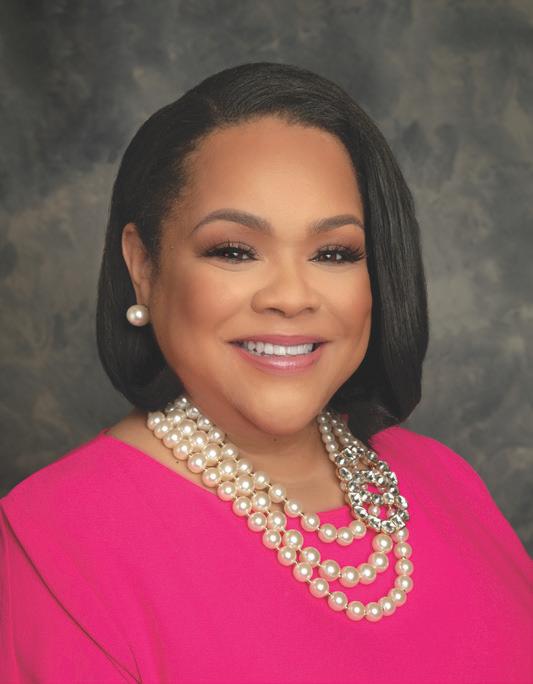
HAYES
Joya Hayes, Director of Human Resources
City of Austin, TX
Joya
Joya Hayes is the Director of Human Resources and the Director of Civil Service for the City of Austin, Texas. She has over 22 years of experience in human resources, training and organizational development, community-based programming, policy and procedure development and executive level planning. As Human Resources Director, Hayes also represents the Human Resources department in all formal negotiations with the Austin Police Department, the Emergency Medical Services department, and the Austin Fire department.
Under her leadership, the City of Austin has received awards for innovative public sector programs in health and wellness, best-managed healthcare benefit plans, employment, and reentry initiatives to support employment opportunities for justice involved individuals. In 2021, The City of Austin was on the Forbes list of America's Best Employers by State.
With over 16,000 employees, the City of Austin is one of the few cities in Texas to score 100+ on the Municipal Equality Index. This index examines how inclusive municipal laws, policies, and services are of LGBTQ+ people. Cities are rated based on non-discrimination laws, the municipality as an employer, municipal services, law enforcement, and leadership on LGBTQ+ equality. The City of Austin prioritizes recruiting diverse talent internally and externally by implementing multiple initiatives like the Fair Chance Hiring and Ban the Box, hosting community job fairs for seniors and justice involved individuals, providing earned sick time to all employees, including temporary employees, expanded holidays like to include Juneteenth and Let Texas Vote days, and providing award-winning health and wellness benefits. In 2022 Austin became the first Texas city to raise the living wage to $20 an hour for all employees.
Joya received a master's degree in Public Administration from Texas State University and a bachelor’s degree in mass communications from Huston-Tillotson University, where she graduated cum laude.
on the cover
6 www.HRProfessionalsMagazine.com


DON’T MISS OUT ON THE PREMIER DE&I CONFERENCE FOR THE HR PROFESSION. IN-PERSON PASSES SOLD OUT! JOIN US VIRTUALLY OCT. 24-26 FROM THE COMFORT OF YOUR HOME OFFICE. 221596 TAKE THE FIRST STEP TO ACTIONABLE CHANGE! With Main Stage sessions featuring: A fireside chat with Cynt Marshall | CEO of Dallas Mavericks An expert panel on The Future and Sustainability of DE&I with: • LaQuenta Jacobs Chief Diversity Officer, XPO Logistics Inc. • Alicia Petross Chief Diversity Officer, The Hershey Company • Pedro Jaime Torres-Díaz Office Managing Principal - Miami, Jackson Lewis P.C. SECURE YOUR SPOT TODAY SHRM.ORG/INC22-LASTCHANCEHRP
MEET MEET
Chris Cavaliere, President of HR Tampa

Chris Cavaliere is an employment lawyer and partner at the law firm of Shumaker in Tampa, Florida. When he is not serving his clients, Chris is passionate about volunteering his time to serve the human resources profession and his community. Chris is the current President of HR Tampa, one of the country’s largest and most active SHRM chapters. In his role as President of HR Tampa, Chris coordinated various initiatives along with his fellow board members to help earn HR Tampa SHRM’s highest Excel Award for chapter excellence. Also during his role as President, HR Tampa was recognized as the 6th highest fundraising chapter in the entire country for the SHRM Foundation. Aside from HR Tampa, Chris is also on the board of directors for Tampa Bay Businesses for Culture and the Arts. Chris was also just recently appointed to the board of directors for NeuroShifts, an organization very close to Chris’s heart that promotes the well-being of the autism and neurodiverse communities.
As an employment attorney at Shumaker, Chris is a practical advisor and passionate advocate for his clients. He assists both large and small employers with HR and employment issues relating to hiring and firing, background checks, employee handbooks, compensation, overtime, discrimination, harassment, retaliation, breach

of contract, unpaid wages, non-competition agreements, non-solicitation agreements, confidentiality agreements, and more. He drafts employment contracts, independent contractor agreements, restrictive covenant agreements, separation and severance agreements, and employee handbooks.
Chris also regularly represents clients before state and federal administrative agencies and courts. Having a strong background as a litigator and trial attorney, Chris prepares each case with an eye toward trial and fearlessly advocates for his clients.
Chris began his legal career as a criminal prosecutor, during which time he tried more than 20 jury trials. Thereafter, Chris represented international corporations, small businesses, and insurers in a variety of legal disputes.
While in law school, Chris received the Victor O. Wehle Award for excellence in trial advocacy, served as a Senior Associate on the Stetson Law Review, and interned for the Honorable Susan C. Bucklew, Senior United States District Court Judge for the Middle District of Florida. Chris is also a member of Phi Beta Kappa, the nation's most prestigious academic honor society.
8 www.HRProfessionalsMagazine.com
Inflation Reduction Act of 2022
By EYE ON WASHINGTON TEAM
On August 16, 2022, the Inflation Reduction Act of 2022 (HR 5376) was signed into law. The Act includes several tax changes, such as a “book-income” corporate alternative minimum tax, enhanced research credit against payroll tax for small businesses, a one percent excise tax on stock repurchases and increased IRS funding. The Act features $370 billion in spending on energy and climate change, including tax incen tives and related provisions affecting transportation, manufacturing and many other industries. Examples include tax credits for developing renewable energy sources, and residential energy efficiency improve ments, as well as a provision making certain energy credits transferable.
Certain provisions may be of interest to employers, although key details remain to be developed via regulations. In brief, these include:
Increased Research Credit Against Payroll Tax for Small Businesses
Currently, qualified small businesses can apply up to $250,000 of specified research tax credits to which they are entitled to the employer’s share of Social Security tax. The Act permits qualified small businesses to apply an additional $250,000 to payroll taxes but also specifies that it will offset the employer share of Medicare tax, beginning in 2023.
One Percent Excise Tax on Stock Repurchases
The Act created a new nondeductible one percent excise tax on stock repurchases of publicly traded corporations. However, many important definitions and rules will need to be promulgated by the Treasury Department to implement this new tax. Generally, a stock repurchase means any redemption of stock or any economically similar trans action, but any taxable repurchases will be adjusted by the amount of stock provided to employees. There are exceptions and exclusions, such as transactions in the nature of a reorganization; repurchase amounts under $1 million; or transactions that are treated as a dividend.
Increase in IRS Funding
The Act provides an additional $80 billion to the IRS over ten years, which is generally expected to increase IRS collections by over $200 billion. More than half of the additional funding ($46 billion) is dedicated to enforcement. Of the remainder, $25 billion is dedicated to operations support, $5 billion for systems modernization and $3 billion for taxpayer services. IRS Commissioner Rettig has committed that this additional funding will be carefully invested to improve opera tions and the taxpayer experience.
Extension of Expanded Affordable Care Act (ACA) Subsidies

ACA healthcare subsidies were temporarily expanded in 2021 by the American Rescue Plan Act, which made ACA premium subsidies available to those earning over 400 percent of the federal poverty limit. The Inflation Reduction Act extended this increased subsidy for three years, through 2025. Although this provision means no change to employers and individuals who qualified for ACA premium subsidies, employers should be aware that these higher-income individuals may qualify for ACA-subsidized health coverage, which could trigger ACA employer shared-responsibility penalties of $2,750 (for 2022) per full-time employee if such individuals apply for and are awarded subsi dized coverage. This also affects employer reporting on Forms 1095-C. ADP can assist with questions and support for ACA employer sharedresponsibility penalties and employer Form 1095-C reporting.
Again, these important provisions will not be fully understood until regulations and tax forms and instructions are issued. Interested organizations should consult with appropriate tax and legal advisors to determine the specific impact that can be expected.
ADP Compliance Resources
ADP maintains a staff of dedicated professionals who carefully monitor federal and state legislative and regulatory measures affecting employment-related human resource, payroll, tax and benefits admin istration, and help ensure that ADP systems are updated as relevant laws evolve. For the latest on how federal and state tax law changes may impact your business, visit the ADP Eye on Washington Web page located at www.adp.com/regulatorynews.
ADP is committed to assisting businesses with increased compliance requirements resulting from rapidly evolving legislation. Our goal is to help minimize your administrative burden across the entire spectrum of employment-related payroll, tax, HR and benefits, so that you can focus on running your business. This information is provided as a courtesy to assist in your understanding of the impact of certain regulatory requirements and should not be construed as tax or legal advice. Such information is by nature subject to revision and may not be the most current information available. ADP encourages readers to consult with appropriate legal and/or tax advisors. Please be advised that calls to and from ADP may be monitored or recorded.
If you have any questions regarding our services, please call 855-466-0790.
10 www.HRProfessionalsMagazine.com

11www.HRProfessionalsMagazine.com
Redefining the Employee Experience You Get What You Pay for, So We've Got To Get Compensation Right
EQUALITY DOENS'T EQUAL EQUITY
A star system, wherein your top performers are lavishly rewarded, can be divisive or it can be incredibly incentivizing. It can derail talent or galvanize a team. So it’s important to ensure you’re defining the difference between equity and equality as you create the right culture of opportunity.
Equality means I’m going to make all roles equal in compensation. Sounds good, right? Who doesn’t want equality? But if pay is solely by job description or a title is part of a paint-by-numbers structure, that doesn’t account for your stand-outs, those achieving above and beyond.
Why should they make the same as another manager in their slotted role if that coworker is just achieving expectations, not exceeding them?
This is where equality hurts you. I mean, it’s natural, right? You want to reward great work and keep great workers. You want to motivate them, push them, and provide a carrot for their drive. So if I develop a structure around equity instead of equality, we’re allowing room for strong performers to grow in their roles.
Say you have two employees, Jane and John. If I treat them equitably, I don’t have to treat them the same. They’re not the same people, not at the same place in their careers, not taking on the same extra work. I can adjust the comp accordingly if I’m working from a structure of equitability.
The notion that we have to treat everyone the same—and it feels good to say it out loud and put it on a bumper sticker—has actually done harm in practice.
Philosophically, it goes back to why quotas are illegal. You can’t mandate a one-size-fits all, check-the-box structure to determine who you hire and how you compensate them. That doesn’t work on the ground, in real life.
It’s not equality that should be your guide to fairness. It’s equity.
THE FOLLY OF GLASSDOOR
Too often you’ll find a collection of gutwrenching reviews intended to rankle you. Even worse is that crisis and reset moments lead to worse commentary. But you are not helpless in the drive to improve employee experience.
Luckily, a reset moment is the perfect time to build the employee experience you need for success.
Don’t waste your time reading reviews of the disgruntled, but do focus on how you can drive outcomes with a workforce committed to your vision, mission, and culture. That’s the ultimate reset tactic and one we can all get behind.
Equality actually divides because the world has never been equal. Think about how this plays out in education. By virtue of what I have achieved in my career, my daughter is going to get a better education than the average child.
My daughter has a parent who in the evening can sit down and do math with her, while another child may have a parent working two jobs. You can’t fully adjust for that reality, which means in many ways equality is an illusion.
YOU GET WHAT YOU PAY FOR
Compensation can’t be arbitrary because that’s where all good intentions of reward can break down. When we talk about meeting employee expectations, specifically around compensation, we’re not pursuing equality. We’re pursuing equity. That pursuit is across the board because, as everyone knows, you get what you pay for.
Setting expectations is important because it sets the table for your culture. If you oversee a company that will greet the post-pandemic world by continuing bagel day or by putting LaCroix and avocados in the office kitchen, that’s fine and good. But perks aren’t the only measure of a culture.
To one CEO, the cool café might be a Millennial construct. To another, it’s the right strategy. Whatever your investment in engagement, however you determine what defines your workplace, compensation has to meet the culture, too. It’s not about equality, where everyone gets a bagel. It’s about equity, where the extra dough is earned.
LEADERSHIP LESSONS
Experience is king and leads to so much success if orchestrated properly. For my friend Vineet Nayar, chairman of HCL Technologies, it meant doing one thing: putting employees first above all others, including customers.
In turn, with their own experience upgraded, HCL’s engaged employees drove greater results by creating better customer experiences.
Here are some key questions you should consider making part of your reset repertoire:
• What are the right levers for engagement & exper ience?
• Where do I find peo p le who can implement effect ive p eople management?
• How do we handle employee activism?
• Wh ere are the real tips for m aking this work in our favor?
• H ow do I design a rewards system that bolster s our culture?
• Do I really need a marketer m o re than a CHRO?
Adapted from Chapter 9 of Reset: A Leader’s Guide to Work in an Age of Upheaval (PublicAffairs), by Johnny C Taylor, Jr., President and CEO of the Society for Human Resource Management (SHRM)
www.HRProfessionalsMagazine.com
12 www.HRProfessionalsMagazine.com
Available Now
ABOUT THE AUTHOR
The Society for Human Resource Management President (SHRM) and CEO Johnny C. Taylor, Jr., SHRM-SCP, announced his new book R RESET: A Leader's Guide to Work in an Age of Upheaval, (PublicAffairs; September 7th, 2021; ISBN: 9781541700437), is available.
R RESET offers a candid, forward-thinking vision for leaders to reimagine company culture and presents data-driven strategies to make a foundational reset for work, workers and the workplace. Taylor's insight charts the path for businesses facing a new reality and serves as part call to action, part playbook for success to rebuild the modern workforce and meet today's extraordinary challenges.
"Your biggest challenge isn't technology, innovation, or even leadership," writes Taylor. "It's finding, hiring and engaging the right talent to thrive now and in the future."
As a sought-after expert and voice of all things work, Taylor is known for charting the way forward through both crisis and uncertainty R RESET envisions how to reshape the world of work and unleash untapped potential to strengthen the workforce and accelerate performance.
In RESET, Taylor expounds, "We have all heard the old adage 'Never waste a good crisis.' I would offer a friendly amendment: 'Make constant reset your friend.' Upheaval brings about opportunities to rethink, reset, and restructure your organization."
Under Taylor's leadership, SHRM has spurred innovative thought on how HR can empower business to meet the relevant challenges of social upheaval and global crisis.
"RESET is an indispensable manual for every manager, leader and team member," says Laszlo Bock, CEO of Humu and former chief people officer at Google. "Tackling the thorniest issues of talent and culture, Johnny Taylor provides a clear, practical roadmap for leading your organization into the future."
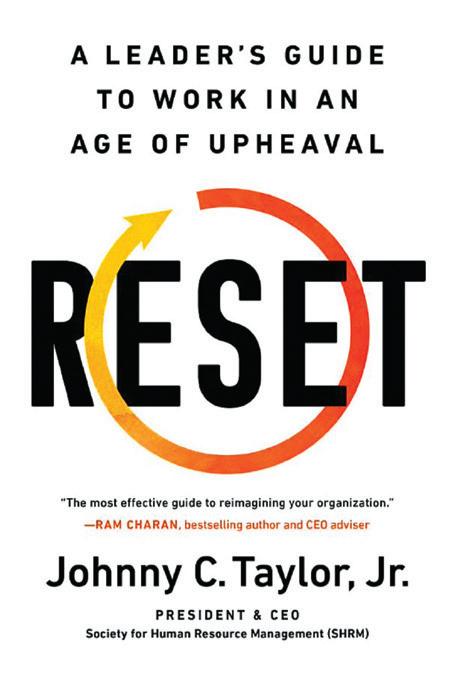
R RESET is now available in hardcover, ebook and audio at all major book retailers.
All author proceeds benefit the SHRM Foundation
Purchase your copy at RESET.SHRM.ORG
Johnny C. Taylor, Jr., SHRM-SCP, is President and Chief Executive Officer of SHRM, the Society for Human Resource Management. With over 300,000 members in 165 countries, SHRM is the largest HR professional association in the world, impacting the lives of 115 million workers every day.
As a global leader on the future of employment, culture and leadership, Mr Taylor is a sought-after voice on all matters affecting work, workers and the workplace. He is frequently asked to testify before Congress on critical workforce issues and authors the weekly USA Today column, "Ask HR."
Mr Taylor's career spans over 20 years as a lawyer, human resources executive and CEO in both the not-for-profit and for-profit space. He has held senior and chief executive roles at IAC/Interactive Corp, Viacom's Paramount Pictures, Blockbuster Entertainment Group, the McGuireWoods law firm, and Compass Group USA. Most recently, Mr. Taylor was President and Chief Executive Officer of the Thurgood Marshall College Fund.
He was appointed chairman of the President's Advisory Board on Historically Black Colleges and Universities and served as a member of the White House American Workforce Policy Advisory Board during the Trump Administration. He is a Trustee of the University of Miami, Governor of the American Red Cross, and member of the corporate boards of Guild Education and iCIMS. He is licensed to practice law in Florida, Illinois and Washington, D.C.
A ABOUT SHRM
SHRM, the Society for Human Resource Management, creates better workplaces where employers and employees thrive together. As the voice of all things work, workers and the workplace, SHRM is the foremost expert, convener and thought leader on issues impacting today's evolving workplaces. With 300,000+ HR and business executive members in 165 countries, SHRM impacts the lives of more than 115 million workers and families globally. Learn more at SHRM.org and on Twitter @SHRM.
At a pivotal moment for business, RESET outlines how organizations can redesign the workplace for a post-pandemic future
SHRM’s Johnny C. Taylor, Jr. Introduces His New Book RESET
8 www.HRProfessionalsMagazine.com 13www.HRProfessionalsMagazine.com 13www.HRProfessionalsMagazine.com
UNTAPPED TALENT:
Give Second Chance a Second Look
By BRAD FEDERMAN, DAVID DUFOUR, and CARLA WILLARD
Where are all the candidates?
Every day, employers lament their inability to find potential employees. Some even wonder if people want to work anymore. Which is it? Either we lack people to fill jobs or people don’t want to work.
It isn’t a difficult question to answer. Just look at the statistics. The unemployment rate has hit a fifty year low, yet the participation rate is very high. There just aren’t enough people in the typical workforce pool. A major culprit may be early retirements and an aging population. We’re looking at historically low birthrates and, unfortunately, the current pool of potential employees will continue to age.
Even with a slowing economy and slightly higher unemployment, the overall trends are not likely to change in the short term. What does that mean for those of us that need employees?
It means we must be flexible, creative, and look for potential employees where we have not looked before, possibly through reentry, or second chance, programs. Previously incarcerated people have a 27% unemployment rate compared to the 3.5% for the overall population. Studies show that approximately 60% cannot find employment, and if they do find employment, the wage gap is significant.
Ironically, we say as a society that we believe in second chances and rehabilitation. Yet, only 5% of employers have made an effort to hire the previously incarcerated. We have to ask ourselves, “Why?”
Could it be the risk?
What about the Risk?
Prior to answering that question about previously incarcerated candidates, take a moment to ask yourself a few questions – and be honest with your answers:
1. With previously incarcerated candidates, is our perception of risk an implicit/ explicit bias that impairs our desire to look at their skillsets/qualifications for the position?
2. Is there risk built into every new hire?
3. Do you take actions to mitigate risk in your new hire process?
If we are honest with ourselves, most of us will have an immediate, implicit bias about previously incarcerated candidates. There are multiple studies that prove our implicit biases can cause us to miss tremendous opportunities in our business and social environ ments. Frankly, there is a real risk that we can rule out a great candidate.
In answering the second and third questions, our answers to both should have been a resounding “YES”! Every new hire brings a significant risk of not fitting in with the culture, not being able to accomplish the job and/or leaving and having us start the whole process again. We mitigate this risk with screening, testing, orientation programs, assigning mentors, training, and retention programs.
Here’s the great news: there are re-entry and non-profit organizations that screen, test, provide general workplace orientation, assign continuing mentors, specifically train necessary skillsets and enroll candidates in external retention programs, so they are ready for you to hire and retain them.
At the end of this article, some of these re-entry programs and non-profits are specifically named, but for now it is important to understand our own “risk” biases and to discuss some of the real benefits of hiring previously incar cerated candidates.
What are the Benefits of Hiring Previously Incarcerated Candidates?
While there are many well-documented studies that show multiple benefits of hiring the previously incarcerated, we’ll specifically address our top three:
1. Availability: There are as many as 77 million adults in the U.S. with a criminal record, meaning they represent a signif icant percentage of the potential workforce. Yet, businesses often overlook this population and statistically, up to 75% are still unemployed a year after being released. With U.S. businesses already having difficulty in finding qualified hires, those who look more closely at this demographic have a better chance of closing their hiring gap.
2. Retention: A study conducted by Northwestern University in 2017 showed that “individuals with criminal records have a much longer tenure and are less likely to quit their jobs voluntarily than other workers.” Additionally, surveys of companies who employ the previously incarcerated have consistently indicated that they are more loyal and motivated employees.

3. Tax Credits: The IRS allows employers who have hired the previously incarcerated to claim a tax credit of up to $6,000 of wages paid if they work over 400 hours. In recent years, the Work Opportunity Tax Credit (WOTC) process has been automated so employers can screen all new employees for eligibility from any device! If a new employee is eligible, the system automatically uses the information collected during the onboarding process and completes the required forms (8850 & 9061) for WOTC processing.
Policy Review and Modification
To determine if outdated or unnecessary restrictions limit your ability to attract and hire individuals with a previous conviction, a great first step is to review your organiza tion’s hiring policies. One option is to adopt the “ban the box” approach.
“Ban the box” policies create a fair chance at employment for applicants by removing the conviction and arrest history questions from the job application. This allows organizations to conduct the background check later in the hiring process (if necessary) and to ensure that background checks are used
14 www.HRProfessionalsMagazine.com
fairly. If a conviction is reported after a candidate has been determined the best fit for the job, the employer assesses the situation and considers key factors such as how much time has passed since the offense and the relevancy of the offense to the position before finalizing the hiring decision.
Resources are available to assist you in reviewing and revising your policies. Policy Revision Toolkits and consultative support are available through organizations like the National Employment Law Project (NELP) and government Offices of Re-entry located in various cities and states.
Partner with Community Organizations
As you begin to explore opportunities to implement hiring ex-offenders, don’t go it alone. Leverage the support and programs of community partners who have experience working with returning citizens. Many government and non-profit organizations have a wealth of resources and expertise that can help you successfully navigate this process.
Local and state government offices of re-entry offer soft skill training as well as technical and vocational programs to prepare re-entering individuals for the modern workforce. These programs vary from state to state, but many offer extensive programs that incorporate not only job readiness skills but also vital support for family recon nection, financial literacy, healthy living, expungement, and voting rights restoration. These programs also provide support for individuals in need of services related to health services, housing needs, child support, wellness classes and much more.
There are many benefits to partnering with organizations. Many organizations have multi-tiered programs that allow participants to progress through various levels of training, development and work experience.

For example, PersevereNow provides a one-year programming course within prisons to certify participants as software developers before their release. In partnership with
technology companies, the participants are eligible for hire upon successful completion of the in-prison program and upon their release. These individuals receive viable skills and real opportunities for success. As a result, organiza tions onboard well trained, skilled and highly motivated individuals.
As a society, we collectively agree in second chances and rehabilitation. Let’s put our money where our mouth is. The labor shortage can be a roadblock to finding good talent, or an opportunity to reframe our thinking and biases. The choice is now up to us.
Brad Federman, President-Elect


SHRM Memphis
CEO, PerformancePoint bfederman@performancepointllc.com www.performancepoint.com
David Dufour, President
SHRM-Memphis
Vice President of Human Resources
The Bank of Fayette County ddufour@bankoffayettecounty.com
Carla Willard, Vice President
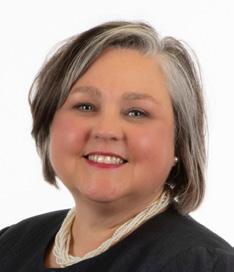
Workforce Development
SHRM-Memphis
VP, Senior HR Business Partner
First Horizon Bank Memphis cswillard@firsthorizon.com
15www.HRProfessionalsMagazine.com
INFLATION IN THE BACKGROUND SCREENING INDUSTRY: How to Keep Costs in Line
 By JULIE HENDERSON
By JULIE HENDERSON
a degree, a certain number of years’ worth of experience, or a clean driving record.
The premise of progressive screening is to use these requirements to the employer’s advantage during the background screening process by screening for those attributes first.
How Does Progressive Screening Work?
HR pros work closely with their background screening partner to identify must-have requirements in the background screening process. The background screening vendor then screens for those requirements first.
than using The Work Number, but it’s also typically faster, and just as accurate.
Background screening vendors can also use the consumer’s permission to access educational information to verify their dates of attendance, majors, and degrees earned.
You can’t turn on the news without hearing about inflation. According to the U.S. Bureau of Labor Statistics, the Consumer Price Index for All Urban Consumers increased by 9.1% from June 2021 to June 2022. This is the largest increase in 40 years.
Price increases affect everything we buy, and it isn’t limited to our personal spending. Companies are seeing dramatic acrossthe-board increases in goods and services necessary to run a business.
Higher prices negatively affect organizations in a variety of ways, including:
• Chipping away at their buying power
• Hindering the ability to scale
• Making it difficult to implement technology and other investments that pay off long-term
• Eroding profits
Rising prices impact a company’s hiring and background screening endeavors. Bringing on new hires costs more than it did just last year. The increased wages of employees involved in the hiring process and the increased cost of the background check products needed to screen the applicants add up to a steeper cost-to-hire with every new team member.
With rising prices, HR must get creative in their hiring processes.
Here are three ways organizations can pivot with their background screening practices and save money without sacrificing the quality or accuracy of their background checks.
OPERATIONAL OPTIMIZATIONS
The first way to mitigate the effect of rising prices is to put your operational processes under a magnifying glass. Is any part of it wasteful, redundant, or unnecessary? Remove, reduce, or redo them.
Using a progressive screening approach is one way of reducing total background screening costs.
What Is Progressive Screening?
HR professionals trying to fill open positions often have at least one hard-and-fast requirement for job candidates. Perhaps it’s
If the job candidate doesn’t offer those requirements, they are eliminated from the job search.
For example, a logistics company is hiring for a position that a valid CDL license and a good driving record. There are 3 viable candi dates. The company’s background screening provider runs a motor vehicle records search for each candidate. The results show that 1 of them has let their license expire and 1 other one has multiple moving violations.
With those 2 ruled out, the company avoids paying for full background checks on them.
Over time, decreasing the full background checks on candidates who aren’t qualified adds up to big savings.
Progressive screening gives employers a way to eliminate unqualified candidates earlier in the process. By spending less on each candi date’s background check, companies save money and focus their resources on viable candidates.
CONSUMER PERMISSIONED DATA
The prevalence of big data has made it possible to use consumer permissioned data to accomplish objectives that weren’t possible in the past.
What Is Consumer Permissioned Data?
Equifax defines consumer permissioned data as “transactional and account-level information that a consumer gives a business permission to access on their behalf. In return, consumer-permissioned data empowers individuals to leverage their financial data to apply for loans and other services.”
How Does Consumer Permissioned Data Save Money on a Background Check?
Data that consumers generate online is housed digitally, making it easy (and costeffective) for employers to use it in their background checks.
A good example is The Work Number, which is a place employers can (for a fee) receive employment information on their candi dates. If your background screening vendor receives permission from your job candi dates, they can access employment records directly from the applicant’s payroll provider. This practice is not only more cost-effective
Using consumer permissioned data for screening your job candidates is a new but effective practice that we expect to gain popularity. By acquiring a candidate’s authorization, your background screening vendor can often skip the “middleman” that drives up costs. This practice can successfully counterbalance the impact inflation has had on prices.
INSTANT ORAL DRUG TESTS
Drug screening is a commonplace part of an organization’s background check process. After all, having a drug-abusing employee on the payroll can cause lots of trouble and be expensive for a company.
A cost-effective way to screen job candidates is with instant oral tests.
Why Choose Instant Oral Testing?
Lab-based drug screening can be expensive. Multiply each test by the number of appli cants in a year, and you’ll undoubtedly have a large sum tied up in drug screening costs.
Using an instant oral testing product is a fraction of the cost of lab-based drug tests. Another advantage to instant screening products is they’re quick. You’ll have an answer in minutes, unlike the days it takes to get off-site drug test results returned. Instant oral testing is especially helpful when HR is trying to fill a position quickly, or the candidate is entertaining multiple offers.
How Are Instant Oral Drug Tests Used? Employers who aren’t required to use lab-based drug screening (such as DOT-approved companies) can substitute an instant on-site drug test for previous off-site drug testing. Simply purchase the tests in advance from your background screening partner, assign an employee to administer the tests, and closely follow the instructions to maintain accuracy.
Today’s inflation is putting pressure on HR to find ways of holding background screening costs down. Getting creative and analyzing your current operational processes are the first steps. By cutting out waste and finding new ways of getting accurate, timely results without negatively impacting the integrity of your candidate screening process, you can keep your background screening costs in line.
Julie Henderson Chief Revenue Officer Data Facts, inc. jhenderson@datafacts.com

16 www.HRProfessionalsMagazine.com
We hope you will join us for our day and a half conference as we cover the latest labor and employment law updates affecting employers, managers, and HR professionals, presented by the attorneys at Wimberly Lawson.

Visit our website at www.wimberlylawson.com to register and view the latest updates, or email Mitzi Gresham, Conference Coordinator, at mgresham@wimberlylawson.com



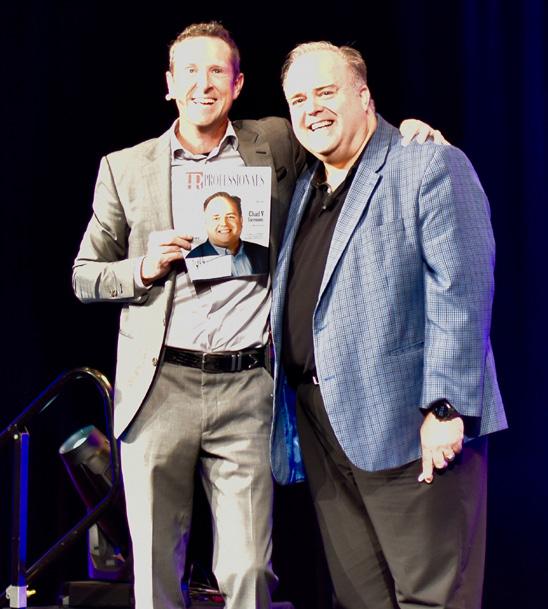



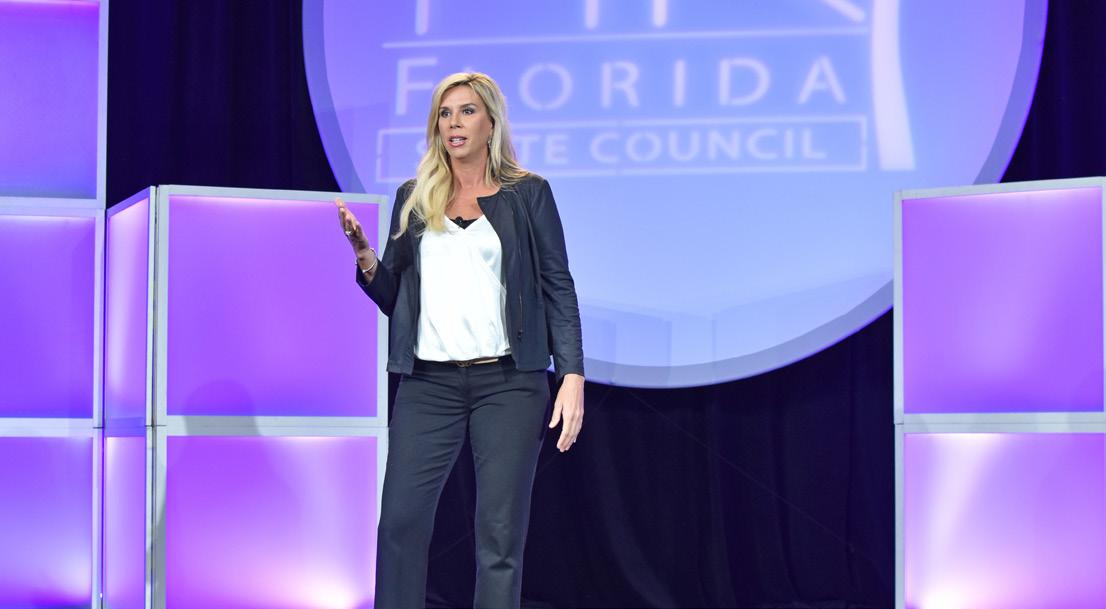
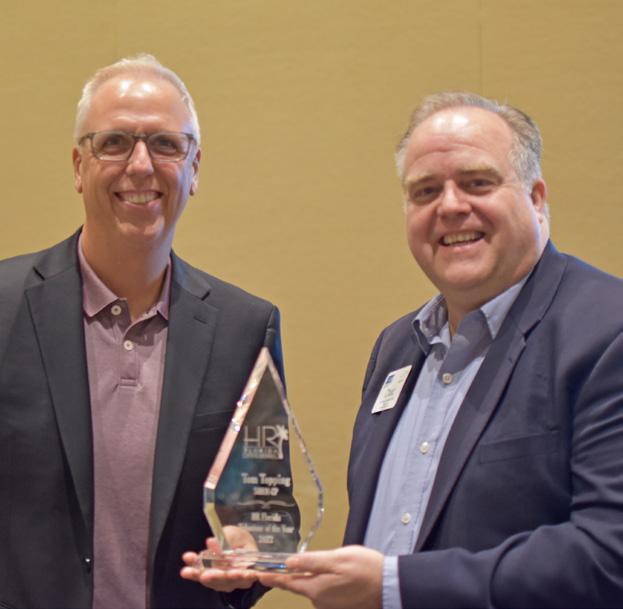 1 Jon Petz, Conference Emcee, with Chad Sorenson, President of HR Florida 2 Mike Aiken, SHRM VP of Membership, with Gloria Sinclair Miller, Director SHRM Executive Network Membership Services; and Dianna Sporcic, Field Services Director for Florida. 3 Chad Sorenson, President of the HR Florida State Council, presents the 2022 HR Florida Volunteer of the Year Award to Tom Topping, SHRM-CP, District Director for District 7. 4 The HR Florida State Council 5 HR Florida raised
Feeding Florida. 6 Sarah Thomas, the first female NFL Official, was a keynote speaker.
1 Jon Petz, Conference Emcee, with Chad Sorenson, President of HR Florida 2 Mike Aiken, SHRM VP of Membership, with Gloria Sinclair Miller, Director SHRM Executive Network Membership Services; and Dianna Sporcic, Field Services Director for Florida. 3 Chad Sorenson, President of the HR Florida State Council, presents the 2022 HR Florida Volunteer of the Year Award to Tom Topping, SHRM-CP, District Director for District 7. 4 The HR Florida State Council 5 HR Florida raised
Feeding Florida. 6 Sarah Thomas, the first female NFL Official, was a keynote speaker.
HIGHLIGHTS HR F LORI DA C O N FER E NC E & E XP O RE IM AG IN IN G WH AT ’S P O S S I BL E AUGU S T 28 – 3 1, 2 0 2 2 9939 Universal Boulevard Orlando, FL 32819Rosen Shingle Creek | | HIGHLIGHTS HR F LORI DA C O N FER E NC E & E XP O RE IM AG IN IN G WH AT ’S P O S S I BL E AUGU S T 28 – 3 1, 2 0 2 2 9939 Universal Boulevard Orlando, FL 32819Rosen Shingle Creek | |
$46,376.31 for
1 2 3 4 5 6 18 www.HRProfessionalsMagazine.com




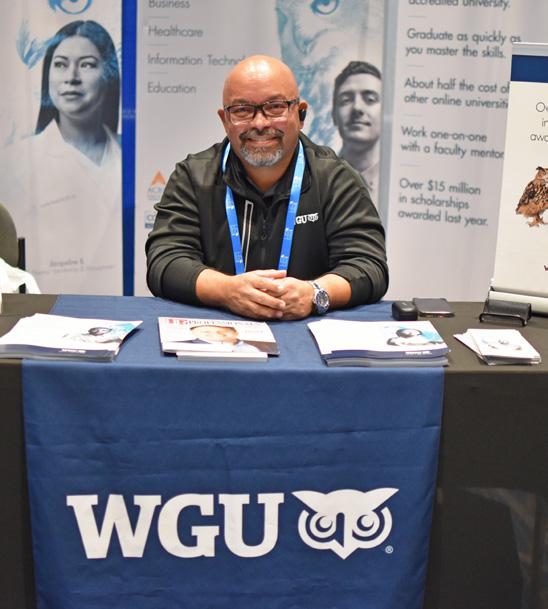




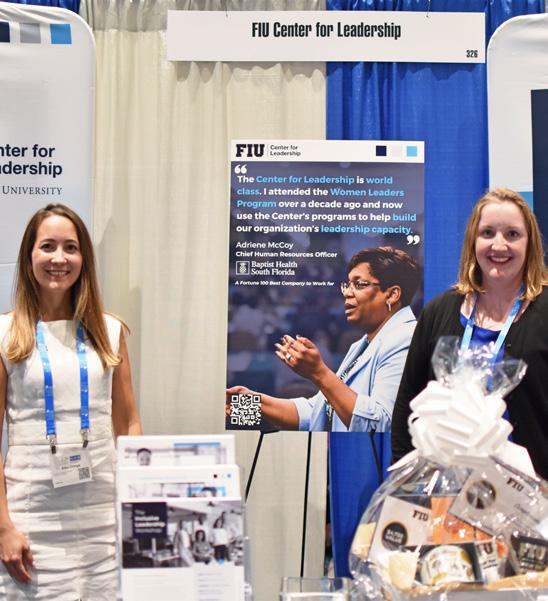 7 The SHRM Booth in the Exhibit Hall 8 The Silent Action benefitting the SHRM Foundation 9 Winners of the Disco Dance Party Competition 10 The attorneys who provided the Legal Update 11 Ben Nemtin was a keynote speaker on Tuesday. 12 Approximately 2,000 HR professionals from 35 states attended the 2022 HR Florida Conference & Expo. 13 The disco skaters entertained the conference attendees at the Tuesday Night Fever Disco Party. 14 The WGU booth 15 The Columbia Southern University booth. 16 The FIU booth.
7 The SHRM Booth in the Exhibit Hall 8 The Silent Action benefitting the SHRM Foundation 9 Winners of the Disco Dance Party Competition 10 The attorneys who provided the Legal Update 11 Ben Nemtin was a keynote speaker on Tuesday. 12 Approximately 2,000 HR professionals from 35 states attended the 2022 HR Florida Conference & Expo. 13 The disco skaters entertained the conference attendees at the Tuesday Night Fever Disco Party. 14 The WGU booth 15 The Columbia Southern University booth. 16 The FIU booth.
7 8 9 10 11 12 13 14 15 16 19www.HRProfessionalsMagazine.com
Consulting services include:

• Presentations and workshops to help organizations maximize diversity and increase inclusion and belonging
• Development and administration of organizational diversity audits and climate surveys
• Training evaluations and assessments to ensure maximum value is realized from current trainings

• Assessment of selection and talent management systems to uncover ways to strategically improve diversity management
• Training (e.g. ally training) geared toward ensuring an organizational climate that fosters inclusion and belonging and allows all employees to thrive


Jihae You, Assistant Professor Director, Center for Workplace Diversity and Inclusion Department of Management, Fogelman College jyou1@memphis.edu
Are You Taking Advantage of
Work Opportunity Tax Credits?

The Work Opportunity Tax Credit is a federal tax program that is administered by each state’s workforce development department. The intent of the program is to incent businesses to hire people that struggle to find work due to circumstances in their lives.
The program awards tax credits to businesses who hire applicants from certain target groups. These include members of households that receive(d) TANF or SNAP benefits, unemployed veterans, veterans with service disabilities, former felons, persons receiving SSI benefits, persons that have been unemployed for extended periods and collected unemployment benefits during that time.
To qualify, the new hire must be certified by the Workforce Development Department in the state where they work. The applicant fills out the IRS 8850 form that asks about the above conditions. That form along with other IRS forms must be submitted to the state’s Workforce Development Department
within 28 days of the first day worked for consideration. If they meet the requirements, the Department will “certify” them.
The credits are based on a percentage of the gross payroll for these persons during their first 12 months of employment. They must work a minimum of 120 hours to qualify.
At tax time, there is a calculation made for each certified employee on yet another IRS form that is filed with the employer’s tax return. The employer’s tax liability is reduced by the amount of the credits. The employer can receive a credit of up to $9600 per certified new hire.
In the event the employer has more credits than their tax liability for that year, the credits can be rolled forward for up to 20 years.
The Work Opportunity Tax Credit has been around in its current form since 1996. It is a legislated program and is currently authorized through 2025. Legislation has been introduced to make the program permanent.
The US Department of Labor reports that there were 2,081,474 WOTC certifications in 2021 an increase over 2020 of 28%.

In our current labor climate, employers must look deeper into the talent pool to find the workers they need to take care of their customers. In fact, many employers are hiring from the WOTC target groups and don’t realize they can earn credits for those hires.


The WOTC target groups are made up of potentially great employees who need a little help to become a productive part of our workforce. WOTC allows employers to earn tax credits while expanding their workforce and helping challenged groups find gainful employment.
For further information, please contact Dhane Marques
Dhaneb.marques@gmail.com 901.489.8849
US
US Tax Works 2.0 Can Help! 21www.HRProfessionalsMagazine.com
This month, Dr. Amy Dufrane discusses the impact of compensation on employee engagement and more with Bridget Sedlock. Bridget is the Chief People Officer at National Student Clearinghouse, which serves the education and workforce communities and all learners with access to trusted data, related services and insights. She was previously an Area HR manager at Rolls-Royce North America, responsible for the delivery of HR services to over 1,300 employees in the Eastern and Southern U.S.
Bridget, thanks so much for joining me to discuss this important topic. At HRCI, we’ve been fielding inquiries regarding employee compen sation. Similarly, I’ve been reading updates from top-tier advisory and research firms on the subject, especially as HR professionals and total rewards leaders are grappling with year-end planning and deciding what changes to make for 2023 and beyond. The Great Resignation, rising inflation and hybrid workforces have put undue pressure on the compensation topic. Do you think it has been ignored previously? Is it really at the heart of why employees work?
I don’t think that compensation has been unduly ignored previously, but I do think that COVID and the Great Resignation have changed the mindset of the workforce and candidates to focus on how they want to spend their time at work and outside of it. The labor market has moved away from what we were experiencing during the first year or so of COVID when no one was changing jobs, given the instability in the world. Employees and candidates are driving what they want: meaningful work, more money, job flexibility, and more. To attract or retain workers, companies started throwing money at people.
That said, I do not believe that money is at the heart of why employees work. Most people want to find meaning in the work that they do as well as feel appreciated for the work that they perform. As part of that, people need to feel that they are being compensated fairly. Finding the balance in this past year of fair compensation versus the market-driven rise in overall compensation has been a challenge for organizations.
Do you think there is a clear-cut relationship between compensation and employee engagement?
There is definitely a link between compensation and employee engagement. If not managed carefully, the topic of compensation can limit employee engagement to be at its fullest potential. What I mean is there can be a relationship between the two, if staff don’t believe that they understand how compensation is determined or they don’t believe they are being compensated fairly, then it is more challenging to raise the conversation to the next level.
CHICKEN or EGG?
Compensation and Engagement
By AMY SHABACKER DUFRANE
It’s more critical than ever for HR professionals to think out-ofthe-box and provide more creative solutions. The workforce is no longer homogeneous and what attracts and retains talent can vary greatly. I always talk to our team about needing to consider their total rewards package, not just their base salary. Many organizations, such as ours, focus on the holistic total rewards that they offer when they determine competitiveness in the market. We encourage our workforce to consider base pay, bonus opportunities, benefits offerings – 401k, benefits costs, time off, flexible work, and other perks – and company culture and mission in determining if an organization meets their career and personal goals.
I don’t think compensation can inspire employees to engage at higher levels, but I do believe that employees who do not feel that they are being treated fairly will disengage.
Should compensation be discussed openly and transparently? For example, should job postings include comp ranges? Should remote workers have their comp adjusted accordingly?

States and localities are legislating requirements for pay trans parency, so the future is headed that way. Companies are challenged to have or to build an infrastructure that supports open and candid conversations about compensation. HR profes sionals can help support the organization in this effort, but it also requires educating leadership to take ownership in this conversation. As far as transparency beyond internal policies, I’m in support of including compensation specifics for job postings if they are in the form of a pay range, so candidates have an understanding that employers consider skills, credentials, years of experience, etc., in that context. It’s still important that organiza tions can differentiate pay based on qualifications and experience for the role. Education for staff is also critical to ensure there is an understanding of how compensation is determined.
The new remote world is complicated. Most organizations are still trying to figure out how to best support it. For example, if there was a locality-based pay structure in place, does that continues? Or do organizations move to a national average pay structure that recognizes employees are moving to other locations easily and pay stays fairly stable. It’s not realistic to increase and decrease pay with each move.
22 www.HRProfessionalsMagazine.com
We’re all watching the economic indicators closely. Will companies that lay off workers pre-emptively need to pay more for talent when they need to recruit?
The current talent market is challenging, and I’m not sure that I have all the answers. Companies are starting to lay off highly compensated staff who might have been hired during the recent quest for talent while still hiring for critical staffing shortages. We are navigating unprecedented times – at the Clearinghouse, we worked hard to manage through the pandemic and not take negative employment actions. We avoided layoffs, reduced work hours while still proving merit increases, and kept our staff employed. Some tough short-term decisions – in particular around our 401k match – and a focus on employee safety and wellbeing ensured we could keep everyone employed.
Bridget, it has been such a pleasure being able to interview you on this important subject. In closing, would you tell me what Clearinghouse has done around comp and benefits?
Among the things that the Clearinghouse did in 2022 around compensation and benefits included a 4% across the board market adjustment in March for all staff, an increased target merit budget for all staff in July, and merit bonuses were also awarded to top performers. We did a holistic salary range review with a third-party consultant to ensure our salaries are competitive with the market (and additional adjustments will be made if they are warranted). We reinstated a competitive 401k employer match of two for one. We have a generous leave program, including three weeks of vacation after the first year based on service and it increases up to almost six weeks over time. Employees after 10 years of service can participate in our vacation buyback program. We pay 100% for short-and long-term disability insurance. And we also offered a new
low-cost healthcare plan that is free for employee coverage. We added more options for those who might want a lower cost option for themselves and their families.
Today’s dynamic business environment begs for additional insights into why we have experienced unexpected, tumul tuous workplace upheaval. Total rewards as it relates to employee engagement will continue to be a significant focus as we move into 2023 and beyond. Ignoring it now will result in giving rise to employee flight risks, compromised employer brands, and decreased business opportunities.
Amy Schabacker Dufrane, Ed.D., SPHR, CAE, is CEO of HRCI, the world’s premier credentialing and learning organization for the human resources profession. Before joining HRCI, she spent more than 25 years in HR leadership and teaching roles. She is a member of the Economic Club, serves on the Wall Street Journal CEO Council, is a member of the CEO Roundtable, and is on the board for the Columbia Lighthouse for the Blind. Amy holds a doctorate from The George Washington University, an MBA and MA from Marymount University, and a BS from Hood College.

CERTIFICATE
Earn 12 general HR credits towards any of HRCI’s eight credentials, including SPHR® and PHR®

learning catalog features 250+ courses and certificates.
This offer will expire on October 31, 2022 at 11:59 pm ET and cannot be combined with any other promotions.
Save 20% on HRCI® Courses in 2022
IN DIVERSITY AND INCLUSION IN HR MANAGEMENT The three courses comprising our certificate were developed in accordance with the International Organization for Standardization’s guidance on diversity and inclusion for organizations (ISO 30415:2021). • Fostering an Inclusive Culture • Assessing Diversity and Inclusion • Hiring and Retaining Diverse Talent Visit learn.hrci.org and use code HRPro2022 to claim your discount at checkout. HRCI’s
23www.HRProfessionalsMagazine.com
FIVE Important HR Tasks to Prepare for 2023
By JANIE WARNER
Ona recently televised football game, the two teams were very evenly matched. Each play was like a tug-of-war with the possession going back and forth. It wasn’t a high scoring game, but it was played with intense fervor all the way to the last seconds of the game. Neither team was willing to accept defeat and there was no time on the clock for any lagging enthusiasm. What a great game!
You are probably wondering what football has to do with the practice of human resources. Actually, it is more of a lesson for all business leaders. It has been a tough year for every industry. It’s tempting to go limping into the fourth quarter with waning excitement and too little energy to start any projects. Instead, leaders may be looking forward to taking time off and just coasting until January 2 when they’ll will pick up the business football, so to speak, and start again.
But this is not the time to quit! Rather, it’s a great time to start writing your playbook for 2023. You can kick it off by looking at five specific things that will give you the focus, drive, and energy to tackle Q1 2023 with greater purpose than ever before.
TASK 1: Review your employee policies. Several things have changed, and more change is coming, given the upcoming mid-term elections and the number of initiatives on the ballot. Are you ready for those? Have you looked at the proposed issues and studied how they may affect the workplace?

Check your other policies as well. If it’s been a while since you did a thorough review, you may find that with all the workplace changes made to the workplace during the pandemic, your policies may not have been changed to reflect these new realities. A couple of examples: If you have several employees working remotely, you should review your safety policies and adapt them for workspaces that are not under the company’s control. You will also want to review your attendance policies if your work hours are more flexible now. Look for consistency as well. If you changed a policy in one area, will that change affect other policies? A review can be a bit tedious, but it is a great way to make sure you have addressed appropriate changes.
TASK 2: Review your job descriptions. The workplace has changed and so have the workers and available workers. Are you having trouble recruiting some positions because of the stated requirements? Evaluating jobs and comparing the actual tasks to those written in the job description could be a real eye opener. Making changes so that jobs and job descriptions align could be just the thing you need to attract a richer labor pool. Perhaps you have a position that has required a four-year degree ever since it’s creation. Evaluate if that degree is still required to do the job or if it was just a preference. You may also have job tasks that are now obsolete. Do you still have a requirement for a clerk to “type 55 wpm”? Updating for the new millennium may be in order!
TASK 3: Review your compensation plans. Inflation has taken a toll on everyone and every business. Employees are probably wondering how their employer will address the rising costs of living
and you need to be ready with a robust response. Start talking about it as soon as possible. Do not let pay increases be a surprise. You will not want to lose employees to companies that are loud and proud of their pay practices and are willing to poach your great employees. If you play your cards right, you could be in a position to poach other company’s employees when they hear about how well you pay and how transparent you are in your compensation strategies.
TASK 4: Strategize your recruitment and retention systems. Have been offering sign-on bonuses? What about stay bonuses? Would you rather pay an unknown new employee, a lump sum to hire them? Or paying your known, well-seasoned employees who stuck with you through a global pandemic and prevented your business from closing the doors?
Have you been lax in helping employees with their career pathing? If you are worried about turnover, a great way to keep good employees is by showing them how they can grow in your company. With labor participation still at it’s lowest, keeping good folks is just as important (or maybe more so!) than constantly replacing the ones who are already performing. A good strategy will be your best friend as the new year rolls in.
TASK 5 : Survey your employees. Want to know what your employees are thinking? Ask them! Whether you’re interested in understanding their level of engagement or looking for what benefits are of greatest interest to employees and their families, surveys are a tried-and-true way to gather needed data. Although the fourth quarter is too late to make changes to most of your insurance plans, it is a terrific time to start your planning and strategy for next year. Perhaps you will find out your employees are overwhelmingly interested in pet insurance. You may not have considered it in the past, but through your survey you have some direction on what you need to explore for the future. You may be surprised to learn what your employees value!
Lastly, it goes without saying that a great benefits’ broker will be one of your best resources for helping to navigate products you are consid ering. Be sure to include them in your conversations and discussions as you head into a new year.
Get Started Now
Does this list seem too daunting? Pick three – or even just one. The important thing is to use the last quarter to craft a business plan to address your top HR concerns. When you start the new year with a roadmap to navigate another (possibly) bumpy year, you will be glad you took the time to review where you are and where you need to be. And when you know where you are going, it’s much easier to find the right road.
Janie Warner, Vice President HR Advisory Practice Leader janie.warner@mcGriff.com McGriff

24 www.HRProfessionalsMagazine.com


 perational Efficiency, Risk Mitigation and the Employee Experience by answering three
perational Efficiency, Risk Mitigation and the Employee Experience by answering three
expense to a competitive advantage...with McGriff MORE InsightsTM
www.McGriff.com
State Prescription Drug Legislation and ERISA Preemption: An Evolving Landscape
By DOUG W. DAHL II and SUSAN K. BILBRO
Over the past several years, state legislatures have addressed prescription drug costs and pharmacy benefit managers’ (“PBMs”) increased bargaining power by adopting legislation to regulate prices and PBMs’ ability to dictate the operation of prescription-drug networks. Some laws are meant to achieve a specific goal, such as ensuring network adequacy or preventing patient steerage to certain pharmacies, while others put forward a comprehensive set of reforms. The laws also vary in which part of the drug-distribution process they target: drug manufac turers, pharmacies, insurance providers, or PBMs. Tennessee enacted two of the most recent laws aimed at comprehensively regulating PBMs and protecting independent pharmacies— TN 2021-HB1398 (2021), and a companion law TN 2022-HB2661 (2022) (hereinafter the “TN PBM Laws”).
For several reasons, these laws are highly controversial and have been, and continue to be, the subject of various lawsuits, some of which ended up before the U.S. Supreme Court. Because many of these laws directly apply to plans subject to the Employee Retirement Income Security Act of 1974 (“ERISA”), the principal issue in many of the cases has been whether ERISA preempts those state laws impacting employer-sponsored health plans under which prescription drug coverage is offered. As discussed below, the jurisprudence on this issue is far from settled.
What is ERISA Preemption?
In order to ensure uniform administration of employer-sponsored benefit plans and to prevent the patchwork application of various state laws to such plans, Congress included a provision in ERISA that expressly preempts any and all state laws that “relate to” (i.e., that have a connection with or a reference to) employee benefit plans, such as ERISA health plans and, by extension, the prescription drug coverage provided thereunder. However, ERISA also carves out from this general preemption any state laws regulating insurance. The impact of this carve-out is that states generally can control the coverage and benefits provided under fully insured ERISA health plans, while not having that same control over self-funded ERISA health plans because the latter are not deemed to be providing insurance.
ERISA’s preemption provision is not only broad, it is also quite vague. Putting aside state regulation of insurance, the question of whether ERISA preempts other state laws affecting employer health plans (whether fully insured or self-funded) hinges on whether the laws “relate to” employer health plans. Unfortunately, neither ERISA nor its implementing regulations specify what it means for a law to “relate to” an employer health plan. As a result, the deter mination of whether ERISA preempts a specific state law rests in the hands of the reviewing federal court and hinges upon the court’s interpretation of the vague statutory standard through the lens of controlling case law. For many years, federal courts tended to interpret ERISA’s preemption provision broadly; however, in recent years, federal courts appear to be applying ERISA preemption more narrowly, particularly for laws affecting prescription drug prices and PBM operation.
Recent Court Cases Involving Prescription Costs and PBM Regulation
In 2015, Arkansas passed Act 900 (the “Arkansas Law”) to regulate PBM reimbursement rates for pharmacies and effectively create a reimbursement floor. PBMs act as intermediaries between pharmacies and prescription drug plans, reimbursing pharmacies for the cost of drugs covered by the plans. In order to determine the reimbursement rate for each drug, PBMs develop and administer maximum allowable cost (“MAC”) lists, which set a maximum amount that a payer will pay for generic drugs and brand name drugs that have generic versions available (multisource brands). Under the Arkansas Law, PBMs are generally required to reimburse Arkansas pharmacies at a price equal to or higher than the pharmacy’s wholesale cost for acquiring the
drug. It also requires PBMs to timely update their MAC lists when wholesale drug prices increase, and to provide appeal rights to challenge MAC reimbursement rates. The Pharmaceutical Care Management Association (“PCMA”), a trade associ ation representing several large PBMs, filed suit, alleging ERISA preempted the Arkansas Law. The Eastern District of Arkansas agreed, and the Eighth Circuit affirmed the ruling that ERISA preempted the Arkansas Law. However, the Attorney General of Arkansas subsequently appealed the decision to the Supreme Court.
On December 10, 2020, the Supreme Court held in Rutledge v. Pharmaceutical Care Management Ass’n, 141 S. Ct. 474, 480 (2020), that the Arkansas Law was not preempted by ERISA. In determining whether the Arkansas Law “related to” ERISA health plans, the Supreme Court looked at whether the Arkansas Law had an impermissible connection with ERISA plans and whether the law specifi cally referred to ERISA plans. The Supreme Court ruled that there was no impermissible connection because the Arkansas Law was “merely a form of cost regulation” that did not “require plan administrators to structure their benefit plans in any particular manner.” Id. at 481-82. In other words, although the Arkansas Law may have increased costs or altered incentives for ERISA plans, it did not force them “to adopt any particular scheme of substantive coverage” or pertain to a central matter of plan administration. Id. at 480. The Supreme Court also ruled that the Arkansas Law did not “refer to” ERISA plans because it applies to PBMs whether or not they manage an ERISA plan, does not act “immediately and exclu sively upon ERISA plans,” and the existence of ERISA plans is not “essential to [the Arkansas law]’s operation.” Id. at 481 (applying the standard used in Gobeille v. Liberty Mut. Ins. Co., 577 U.S. 312, 319-20 (2016) for determining whether a law “refers to ERISA.”).
Although the Supreme Court’s decision in Rutledge likely changed the playing field for state legis lation of PBMs specifically aimed at regulating prescription drug reimbursement rates and MAC lists, whether the Rutledge decision would act as a springboard for protecting more comprehensive state legislation remained unsettled. However, on February 22, 2021, shortly after the Supreme Court decided Rutledge, the Court once again weighed in on ERISA preemption in a case involving a North
26 www.HRProfessionalsMagazine.com
Dakota law that was more comprehensive. The North Dakota law, among other things, regulated the fees PBMs and third-party payers may charge pharmacies, limited what copay ments PBMs or third-party payers may charge, and prohibited PBMs from setting limits on information pharmacists may provide customers. The Eighth Circuit had ruled that the North Dakota law was preempted by ERISA “because its references to ‘third-party payers’ and ‘plan sponsors’ impermissibly relate to ERISA benefit plans.” Pharmaceutical Care Mgmt. Ass’n v. Tufte, 968 F.3d 901 (8th Cir. 2020). However, the Supreme Court granted, vacated, and remanded the case to the Eighth Circuit for further consideration after Rutledge. On remand, in Pharmaceutical Care Management Ass’n v. Wehbi, 18 F.4th 956 (8th Cir. 2021), the Eighth Circuit vacated its original opinion based on the precedent set by Rutledge; namely, that “a state law has an impermissible connection with ERISA plans if and only if it governs a central matter of plan administration, interferes with nationally uniform plan administration, or acute, economic effects of the law force an ERISA plan to adopt a certain scheme of substantive coverage.” Id. at 968.
Future of Prescription and PBM Legislation and ERISA Preemption Challenges
Following the Supreme Court’s decision in Rutledge, more states have moved to propose or adopt comprehensive legislation affecting prescription drug costs and the operation of PBMs. For example, the aforementioned TN PBM Laws include provisions setting minimum reimbursement amounts, requiring higher professional dispensing fees for low-volume pharmacies, and requiring more transparency by PBMs. The TN PBM Laws also prohibit PBMs from steering covered participants toward lower-cost pharmacies (through network and pricing design) and impose significant disclosure requirements on covered entities, which specifically include ERISA health plans. Other states have similar provisions that both align with and go beyond the laws considered in Rutledge and Wehbi.
Although the Eighth Circuit’s reconsideration and ruling in Wehbi likely provided additional support that more comprehensive laws could survive an ERISA preemption argument, the fact remains that state laws that are broader than the Arkansas and North Dakota laws at issue
in Rutledge and Wehbi, respectively, remain subject to legitimate challenges by opponents. Should the TN PBM Laws or similar broad-based state laws be challenged, because of the emerging case law, we expect courts will evaluate ERISA preemption claims on a provision-by-provision basis and only preempt or invalidate provisions that clearly and directly impact ERISA plans’ design choices or other areas of plan administration. In the meantime, ERISA plan administrators—especially those employers that maintain self-insured plans—and PBMs will need to pay close attention to these various state prescription drug laws, as well as certain other state laws regulating PBMs, to ensure compliance.

This article was originally published by the Washington Legal Foundation on August 12, 2022
Doug W. Dahl II, Member Bass, Berry & Sims - Nashville ddahl@bassberry.com www.bassberry.com
Susan K. Bilbro, Counsel

Bass, Berry & Sims - Nashville sbilbro@bassberry.com www.bassberry.com
Bass, Berry & Sims listens and responds with creative yet practical counsel. We stay on pace with the complex and rapidly evolving employment landscape, connecting your dynamic human resources needs to proactive strategies.

Relationships, reliability, and respect – at the center of our Labor & Employment and Employee Benefits practices.
Stay up-to-date on the latest in HR Law. Visit our blog at bassberryhrlawtalk.com.
Centered to deliver. bassberry.com
GO CONFIDENTLY.
27www.HRProfessionalsMagazine.com
raineykizer.com 731.423.2414 Memphis | Jackson | Nashville | Chattanooga Rapid Responses for Employers’ Needs




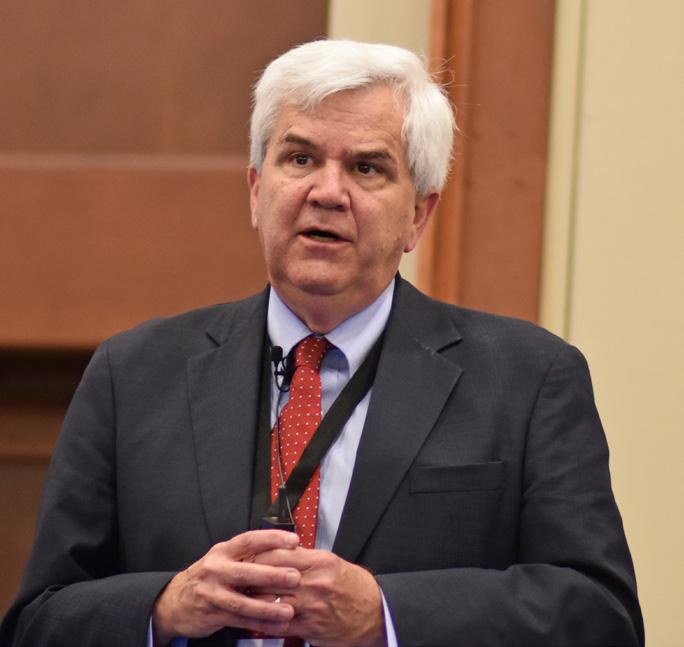



 Mark Lindquist motivational speaker, entertainer, author
Garland Vance author, speaker, Executive coach
Mark Lindquist motivational speaker, entertainer, author
Garland Vance author, speaker, Executive coach
Dr.
Keynote Speakers Regular until 09/09//2022 Full-time Student is de 12 semester hours at a post-secondary educational institution Legal Day: Includes 1-day Legal Conference General and Concurrent Sessions only Company Group Discount Rates: Includes Full Conference $625 $100 $425 September 14 –16, 2022 3 Attendees $1,700 4 Attendees $2,200 5 Attendees $2,700 w Includes Legal Day, 1.5 Breakfasts, Lunches, 2022 Dates: Sept. 14 -16, 2022 Location: Sevierville Convention Center, Wilderness at the Smokies Sevierville, TN 37876 Resort Information: www.wildernessatthesmokies.com Reservation Information: (attached to Convention Center) $99 / night Mention Booking ID #56430 River Lodge (Lower Hotel Resort) wwww.tnshrm.org 1 The 2022 Tennessee SHRM Conference Team 2 Art Smith, Executive Director of Tennessee-SHRM 3 Fred Bissinger, Managing Member of the Nashville office of Wimberly Lawson, spoke on “DE&I Meets the Law: Walking a Tightrope.” He also led a discussion on “What’s Up at the EEOC.” 4 Gary Edwards with Baker Donelson was the opening speaker for the conference Legal Day. His topic was “Social Media in Discovery and Litigation.” 5 & 6 Howard Jackson and Gerard Jabaley, attorneys with Wimberly Lawson, spoke about “How Not To Be a Target for Unions.” 7 Carol Merchant, attorney with Wimberly Lawson, discussed “The Wild and Wacky World of the Fair Labor Standards Labor Act.” 1 432 5 6 7 30 www.HRProfessionalsMagazine.com


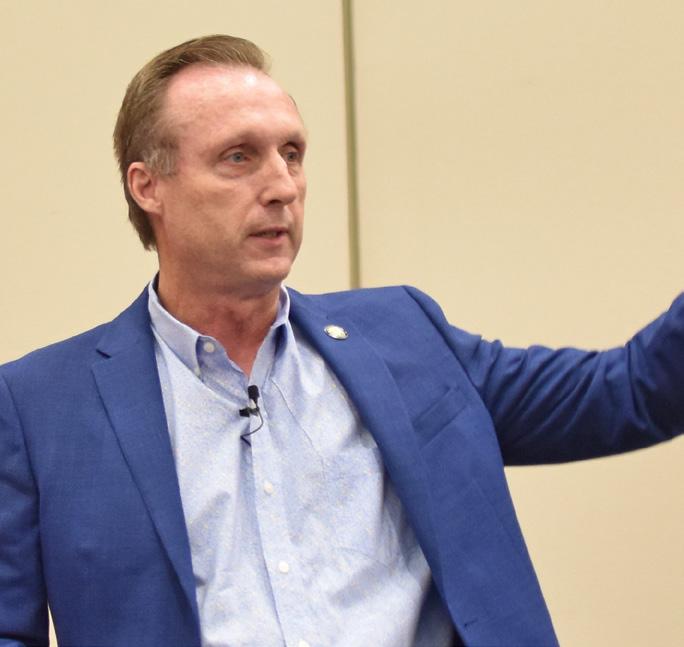





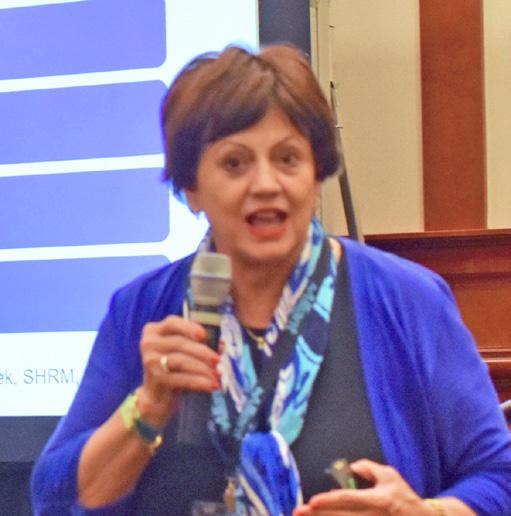

 8 The SHRM Games were led by Dr. Debbie Mackey with the University of Tennessee and Dr. Kathy Tuberville with the University of Memphis. 9 Monique Akanbi, SHRM Field Services Director for Tennessee 10 Scott Kelly and Andy Wainwright with MTSHRM manned the Tennessee SHRM Auction with proceeds going to the SHRM Foundation. 11 Dr. Kathy Tuberville with the University of Memphis co-presented “The Post-Pandemic Workforce: Reskilling the Workforce and Re-Imagining Talent Management. Mike Bruno with Performance Point was a co-presenter.
12 Mark J. Lindquist, keynote speaker, spoke on “Passion! 8 Steps to Ignite Yours.”
13 Dr. Nicole Price was the closing session keynote speaker. She discussed “Guiding the Inclusion Journey.” 14 Jeff McManus, Director of Landscape Services at the University of Missis sippi, was a keynote speaker on Thursday. His topic was “It’s not About the Paycheck.” 15 Dr. Kimberly Estep, Chancellor of WGU Tennessee, at the WGU booth. 16 Fred Bissinger, Howard Jackson, and Mitzi Gresham at the Wimberly Lawson booth. 17 Meredith Maroney and Geoffrey Lindley, attorneys with Rainey Kizer Reviere & Bell. 18 Members of the 2023 Tennessee SHRM Conference Team invited attendees to Chattanooga for the 2023 conference.
109
8 The SHRM Games were led by Dr. Debbie Mackey with the University of Tennessee and Dr. Kathy Tuberville with the University of Memphis. 9 Monique Akanbi, SHRM Field Services Director for Tennessee 10 Scott Kelly and Andy Wainwright with MTSHRM manned the Tennessee SHRM Auction with proceeds going to the SHRM Foundation. 11 Dr. Kathy Tuberville with the University of Memphis co-presented “The Post-Pandemic Workforce: Reskilling the Workforce and Re-Imagining Talent Management. Mike Bruno with Performance Point was a co-presenter.
12 Mark J. Lindquist, keynote speaker, spoke on “Passion! 8 Steps to Ignite Yours.”
13 Dr. Nicole Price was the closing session keynote speaker. She discussed “Guiding the Inclusion Journey.” 14 Jeff McManus, Director of Landscape Services at the University of Missis sippi, was a keynote speaker on Thursday. His topic was “It’s not About the Paycheck.” 15 Dr. Kimberly Estep, Chancellor of WGU Tennessee, at the WGU booth. 16 Fred Bissinger, Howard Jackson, and Mitzi Gresham at the Wimberly Lawson booth. 17 Meredith Maroney and Geoffrey Lindley, attorneys with Rainey Kizer Reviere & Bell. 18 Members of the 2023 Tennessee SHRM Conference Team invited attendees to Chattanooga for the 2023 conference.
109
8 11 12 13 14 18 16 15 17
31www.HRProfessionalsMagazine.com
I am so honored to be Chairing the 2022 Arkansas SHRM HR Conference & Expo, Taking You HigheR. It’s hard to believe we are celebrating our 35th consecutive year. It is also my 30th year to be associated with this conference - with a few detours along the way. As a matter of fact, it was 30 years ago this year that I attended my first state conference in Hot Springs at the Arlington Hotel. There were a lot fewer attendees and exhibitors than we have now, but the conference was a huge turning point in my career. At the time, I had just started working for a company whose COO would one day become a State Council Director, serving from 2004-2006. It was that COO that encouraged me to embrace the HR profession. I have been a SHRM member since 1992 and earned my PHR certification in 2018.

Having grown up in Memphis, Tennessee, where I attended Memphis State University, now University of Memphis, I had no idea what I wanted to do with my life. I was fortunate to have been recruited into the Manager Training Program at General Electric. A few months into my new adventure, I was asked to move to Chicago, which I was excited to do. It did not take long during my time in Chicago to realize that I was not well suited for the career track I was on. I moved back to Arkansas
Message from
in 1988 and accepted a position with a staffing company and I found a role that I could embrace for the rest of my professional career.
In 1992, I joined Brewer Personnel, which later became Staffmark. This was the point in my life when I realized HR would be my lifelong passion. My fist volunteer role for ARSHRM was as the Exhibitor Chair for the 1992 conference. Back then, the conference committee would meet at the conference venue each month to plan the conference. Those were fun times and allowed me to develop lifelong relationships with HR Professionals all over the state. I remained as the Exhibit Chair each year until accepting a job transfer with Staffmark that took me to Portland, Oregon. While in Portland, I volunteered with Pacific Northwest Human Resource Association.
In 2000, I decided to try my hand at being a small business owner and spent the next eight years leading a small boutique staffing agency. During this time, I served as the President of the Downtown Employers Association. Our group worked closely with city and state leaders to advocate for small employers in Downtown Portland. In early 2008, family obligations called me home to Memphis to care for aging parents.
After the deaths of both parents within six weeks of each other, I ended up back in Arkansas and reconnected with old friends from my early career days. It did not take long to be recruited back into volunteering.
Over the last decade, I served on the Central Arkansas HR Association (CAHRA) board for six years and, in 2019, served as CAHRA President. During this time, I have continued to be involved in our state conference as the Exhibit Chair. I have had the pleasure of working with many amazing HR folks who are passionate about the work that they do. Without them, these conferences would be difficult to deliver.
I am grateful that in my current role as an HR Partner for Arkansas Blue Cross, they are very supportive of my passion for volunteering in the HR community. Currently, I serve on the ARSHRM State Council as the Director – At Large Members and on the Northwest Arkansas HR Association Board as the Chair of College Relations.
It is with great pride that I welcome you to our conference and hope that after your experience here in Hot Springs, you will agree that we took you HIGHER and provided you valuable tools and resources that will benefit you and your organization.
Dale Clinton, PHR, 2022 Conference Chair
35th Arkansas SHRM HR Conference & Expo
32 www.HRProfessionalsMagazine.com
Angelia
Conference Speakers
Conference Speakers
Monday Speakers
Monday Speakers
Bethany Gaboury
Pam Green Taking You HigheR: Think Like An Executive HR Brand

Leslie Coleman The Best Practices & Pitfalls of Diversity
Tuesday Speakers
Tuesday Speakers Wednesday Speakers
Wednesday Speakers
Coaching
the
Tina Gilbert Diversity: An Ethical Imperative
Jason
Wayne Young, Cindy Kolb Effective Terminations and
Pam
Alaina Papen (Paycom) Building Trust Through Payroll
Kathleen McComber Effective HR Investigations
Glenda Caton
in the
Dr. Mario Wallace Effective HR Strategies
Keneasha
Brennan McCutchen & Jonnathan Davis
Tim Orellano & Lynn Clements Strategies to Take
Practices HigheR
Stout
Andy
Tina Gilbert
Jason
Pam
Alaina Papen (Paycom)
Kathleen McComber Effective
Glenda Caton Engaging in the
Dr. Mario Wallace Effective
Keneasha
Brennan McCutchen & Jonnathan Davis The Modern-Day
Tim Orellano & Lynn Clements Strategies to Take
Practices HigheR
Tad
Jim
Carrie Stout
Minnie Lenox, Melody Lenox, & Brian Lenox
Sheila
Scott
Kerrie
Andy Kelloms
McKenney Compensation Tips for HR Professionals Marina Mueller HR Leadership Takes Head & Heart
Bridging
Gap Between Corporate Culture and Front-Line Managers
Thurman Michelle Kaemmerling,
Other Adverse Actions Strategic HR is Not an Oxymoron
Green Think Link An Executive HR Brand - PART 2
Monic Isom How to Reach Your Full HR Potential Doug Elms Safe Terminations: Best Practices for High Risk Terminations
Engaging
Interactive ADA Process
Janie Warner SHRM-SCP Building a Culture of Excellence: Creating & Caring for Corporate Culture
Scott Preparing for Communicable Diseases
The Modern-Day Fiduciary
Your Pay
Tad Bohanon & Tatiana Herrington The Critical Relationship Between the CEO & HR Dr. Roderick Smothers The Next Generation of Solutions: Employer Collaboration with Colleges & Universities Stuart Jackson & Tangelia Clary-Marshall Medical Marijuana Jim Corter Future of Work: Being a Talent Magnet Carrie
FSA/HSA/HRA Comparisons Minnie Lenox, Melody Lenox, & Brian Lenox Three Generations of HR Sheila Moss I-9 Management Scott Crossett Recruiting Tips & Trends Kerrie Lauck How the Attitudinal Qualities of Mindfulness Support DE&I
Kelloms Safety & Workers Compensation: Understanding the Gap Nina Sossamon-Pogue Nclusion.Speak Dr. Stephanie Nehus The Importance of HR to an Organization Jim Lopata HigheR & HigheR: Creating an Outstanding
Culture
Angelia McKenney Compensation Tips for HR Professionals Marina Mueller HR Leadership Takes Head & Heart Bethany Gaboury Bridging the Gap Between Corporate Culture and Front-Line Managers
Diversity: An Ethical Imperative Pam Green Taking You HigheR: Think Like An Executive HR Brand Leslie Coleman The Best Practices & Pitfalls of Diversity
Thurman Michelle Kaemmerling, Wayne Young, Cindy Kolb Effective Terminations and Other Adverse Actions Strategic HR is Not an Oxymoron
Green Think Link An Executive HR Brand - PART 2
Building Trust Through Payroll
HR Investigations Monic Isom How to Reach Your Full HR Potential Doug Elms Safe Terminations: Best Practices for High Risk Terminations
Interactive ADA Process
HR Strategies Janie Warner SHRM-SCP Building a Culture of Excellence: Creating & Caring for Corporate Culture
Scott Preparing for Communicable Diseases
Fiduciary
Your Pay
Bohanon & Tatiana Herrington The Critical Relationship Between the CEO & HR Dr. Roderick Smothers The Next Generation of Solutions: Employer Collaboration with Colleges & Universities Stuart Jackson & Tangelia Clary-Marshall Medical Marijuana
Corter Future of Work: Being a Talent Magnet
FSA/HSA/HRA Comparisons
Three Generations of HR
Moss I-9 Management
Crossett Recruiting Tips & Trends
Lauck How the Attitudinal Qualities of Mindfulness Support DE&I
Safety & Workers Compensation: Understanding the Gap Nina Sossamon-Pogue Nclusion.Speak Dr. Stephanie Nehus The Importance of HR to an Organization Jim Lopata HigheR & HigheR: Creating an Outstanding Coaching Culture
Top Labor and Employment Law Attorneys


















































LISTED IN CHAMBERS USA















HR Professionals Magazine congratulates our top labor and employment law attorneys from Alabama, Arkansas, Florida, Georgia, Kentucky, Louisiana, Mississippi, North Carolina, and Tennessee listed in the 2022 Chambers and Partners Guide. For details about Chambers and Partners research, please visit their website, www.chambersandpartners.com. This list is not exclusive and represents the firms who responded to our inquiry.
Bass, Berry & Sims
At Bass, Berry & Sims, positive human relationships and interactions drive business success. Our Labor and Employment team works with public and private companies across a variety of industries, ranging from Fortune 500 companies to small locally owned businesses. As experienced litigators, the team defends employment cases and works with employers to avoid litigation on the frontend through day-to-day counseling and HR training. Our attorneys are regularly involved in matters involving discrimination, retaliation, wrongful discharge, non-competes, FMLA, wage and hour, defamation, employee misclassification and a myriad of other traditional labor issues. For more information, visit bassberry.com.
Tim Garrett of Bass, Berry & Sims helps employers solve complex issues related to all aspects of labor and employment law, providing in depth counseling and developing creative solutions to underlying business issues. He is an experienced trial lawyer, defending employers of all sizes in employment litigation claims across the country. His work has ranged from defending a major university during a significant wage and hour collective action involving thousands of employees to the successful defense of a major healthcare provider in a gender discrimination/retaliation case. In addition, Tim has served as nationwide labor and employment counsel for the largest nonprofit dialysis company in the U.S. Tim has been recognized by Mid-South Super Lawyers for more than ten years, along with Best Lawyers in America® and Chambers USA for many consecutive years. This recognition paired with his experience has earned him a national reputation for counseling employers through the maze of complex employee issues.
Bob Horton, Chair of Bass, Berry & Sims’ Labor & Employment Practice Group, represents management in all areas of labor and employment law. Bob's practice consists primarily of counseling clients regarding employment issues and defending companies against all manner of employment claims throughout the U.S. Bob has substantial jury trial experience and has obtained defense verdicts in discrimination and retaliation lawsuits across the country. With a robust non-compete practice, Bob has assisted employers in drafting non-compete agreements on a state by state basis, enforcing non-compete agreements by way of obtaining injunctive relief, and defending the company and new employees against claims of breach of non-compete agreements with prior employers. Bob assists numerous public companies and executives in the negotiation of employment agreements, as well as executive departures and subsequent issues that arise from equity grants in various forms.

34 www.HRProfessionalsMagazine.com
Littler Mendelson, P.C.
With more than 1,700 labor and employment attorneys around the world, Littler provides workplace solutions that are local, everywhere. Our diverse team and proprietary technology foster a culture that celebrates original thinking, delivering groundbreaking innovation that prepares employers for what’s happening today, and what’s likely to happen tomorrow. Because at Littler, we’re fueled by ingenuity and inspired by you.
TENNESSEE
Paul E. Prather is a shareholder in Littler’s Memphis office. He represents management exclusively in all areas of employment and labor relations, including state and federal employment litigation and in administrative proceedings before the National Labor Relations Board, the Equal Employment Opportunity Commission and the United States Department of Labor. With more than 30 years of success in defense litigation, including jury trials, he is a frequent lecturer and author for management and legal groups on labor and employment law issues.
Tanja L. Thompson is office managing shareholder in Littler’s Memphis office, co-chair of the firm’s Traditional Labor Practice Group and a member of the firm's Board of Directors. She dedicates her practice to representing companies in the area of traditional labor law. National Fortune 500 companies as well as local employers across various industries, such as manufacturing, healthcare, and services, seek her expertise in remaining union-free and in managing their unionrepresented workplaces. Her union-free efforts include campaigns, comprehensive union vulnerability assessments, human relations audits, communication strategies, and union avoidance and positive employee relations training.



Jennifer B. Robinson is a shareholder in Littler’s Nashville office. She has been the lead defense attorney in nearly 40 wage and hour class and/or collective actions involving claims of misclassification, overtime and minimum wage violations, and missed meal and rest breaks. She also counsels, trains and conducts audits for clients to ensure compliance with federal and state wage and hour laws. In addition to her wage and hour practice, Jennifer defends employers in single and multi-plaintiff lawsuits involving claims of discrimination, harassment, failure to accommodate and breach of contract.
C. Eric Stevens is a shareholder in Littler’s Nashville office. He has over 30 years of experience representing clients - focusing on healthcare and financial institutions - in labor relations and employment litigation. He represents both union and non-union employers, providing counseling to avoid litigation as well as defending clients in both court and administrative proceedings. Eric regularly speaks to industry groups and business roundtables on new developments in the law and issues that can directly affect their operations. He provides training on discrimination, harassment, wage and hour and related topics for private employers, public employers and governmental entities.
FLORIDA
Patrick DeBlasio is a shareholder in the Miami office. He represents employers in all aspects of employment litigation, including claims arising under Title VII; the Age Discrimination in Employment Act; the Americans with Disabilities Act; and other employment laws. He also has significant experience defending employers in single plaintiff and collective actions under the Fair Labor Standards Act; conducting wage and hour audits; handling restrictive covenants; and repre-senting employers in proceedings before the Department of Labor and similar agencies, in state and federal court, and in arbitration. Additionally, Patrick provides general advice and counseling on employment matters and regularly speaks before industry groups and associations on employment-related topics.
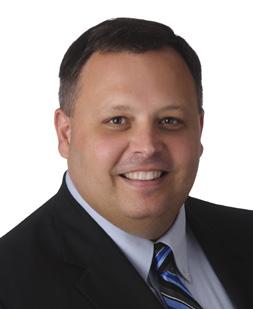

Jessica Travers is a shareholder in the Orlando office. She has extensive experience counseling and advising employers on a wide range of cutting-edge workplace issues, including employment policies and procedures, internal investigations, accommodation requirements, leaves of absence, wage and hour compliance and remediation, employment-related agreements, terminations, discipline, disability access laws, and manager and employee training. Jessica works with employers of all sizes in an array of industries, including energy, hospitality, retail, e-commerce, technology, real estate, and transportation and logistics. Jessica is known for identifying and resolving potential areas of liability and exposure in a proactive but practical way.

KENTUCKY
LaToi Mayo is a shareholder in the Lexington office. She has advised, counseled and defended employers in regard to labor and employment matters for the past 20 years. She has successfully litigated single plaintiff discrimination and wage and hour claims as well as class and collective actions in both state and federal court. LaToi has also successfully handled investigations and charges on employer’s behalf before administrative agencies like the Department of Labor, EEOC, and NLRB and similar state agencies. LaToi works most frequently with manufacturers, health care facilities, and local city governments. LaToi has notable experience in enforcing and/or advising clients on arbitration agreements, restrictive covenants and wage and hour compliance issues. LaToi routinely presents at seminars, focusing on labor and employment topics for a variety of professional organizations in Kentucky. She also provides training for managers, supervisors and general workforce and provides compliance counseling.
Jay Inman is a shareholder in the Lexington office. His practice includes representing employers in administrative matters and litigation brought by individuals and government agencies, as well as advising employers on employment-related issues, policies and procedures. Jay serves as a go-to on drafting and enforcement of arbitration agreements, investigations in the workplace, and complex and appellate litigation.
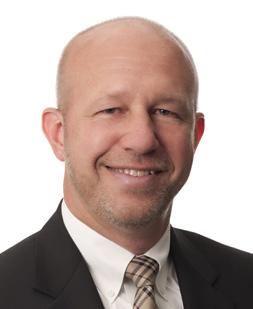

35www.HRProfessionalsMagazine.com
ALABAMA
Leslie A. Dent is a shareholder in Littler’s Atlanta office. She is an experienced trial lawyer who has successfully tried cases ranging from individual discrimination matters to complex wage and hour class actions. She represents employers in class and collective actions involving off-the-clock claims, challenges to exempt status and other wage-related claims, as well as Rule 23 class actions alleging discrimination claims. Leslie counsels and represents employers on a broad range of employment law issues, including discrimination, harassment, retaliation, and leave laws. She has extensive experience conducting and supervising internal investigations and defending whistleblower and retaliation claims, including Dodd Frank and False Claims Act claims.
L. Traywick Duffie is a special counsel in Littler’s Atlanta office. He represents corporate clients in a broad range of employment and labor law, including employment litigation, union organizing, wage and hour and Employee Retirement Income Security Act matters. He has successfully defended numerous class and collective matters and countered union organizing campaigns in more than 40 states. He has successfully defended single plaintiff, multiple plaintiff and class action litigation involving, race, age, sex, pregnancy, disability, retaliation, ERISA, whistleblowing, covenants not to compete and state law contract claims.
Lisa "Lee" A. Schreter is a shareholder in Littler’s Atlanta office. She is a former co-chair of the Wage and Hour practice Group and former chairperson of Littler's Board of Directors. She focuses on representing employers in complex class and collective actions involving overtime and other wage-related claims and specializes in helping employers to develop forward-thinking compliance measures that reduce wage and hour disputes and other employmentrelated issues. She also represents and counsels management clients in connection with all other types of labor and employment matters arising under federal and state laws such as the Fair Labor Standards Act, the Equal Pay Act, the Service Contract Act and state law wage and hour requirements.
Daniel Turner is a shareholder in Littler’s Atlanta office. He counsels and represents employers in all aspects of litigation in employment law issues, including discrimination, harassment, retaliation, wage and hour, and leaves of absence. Serving as lead counsel in more than 50 class and collective actions throughout the country, he has litigated cases under the Title VII and Section 1981 of the Civil Rights Act, the Age Discrimination in Employment Act, the Fair Labor Standards Act and various wage and hour laws. Dan's extensive litigation practice also includes state law tort, contract, restrictive covenant claims, and various types of civil rights litigation.

Office Managing Shareholder Jay D. St. Clair has represented clients in employment and labor law matters for more than 30 years, including discrimination, harassment and retaliation claims; labor management relations; wage and hour regulations; and occupational safety and health.

Charles A. Powell has represented employers throughout the Southeast against employment discrimination and harassment, non-competition and wage and hour litigation lawsuits for more than 23 years. He has a strong record of successfully defending employers against various employment and labor law claims.


Jennifer Fox Swain has represented management in employment matters for more than 25 years. Her practice includes litigation in state and federal courts, as well as before arbitrators, the Department of Labor, the Equal Employment Opportunity Commission (EEOC) and other state and federal agencies. Jennifer also has experience handling class and systemic cases brought by the EEOC. Additionally, Jennifer regularly advises employers on issues relating to compliance with various employment discrimination statutes, rules and regulations and counsels employers on day-to-day personnel issues. She also assists employers with the development, drafting, implementation and enforcement of workplace policies and procedures.
Janell Ahnert's practice encompasses all facets of employment law, specifically in representation of management in both employment counseling and employment litigation. Janell handles a variety of employment law matters in state and federal courts and has broad experience defending employers accused of harassment and discrimination in federal court. She has litigation and counseling experience in numerous areas of employment law, including issues involving wage and hour claims, harassment, discrimination, and whistleblowing.
ARKANSAS
Eva C. Madison is a shareholder in Littler’s Fayetteville office. She represents and advises employers of all sizes in all aspects of employment law, primarily focusing on employment litigation, ranging from single-plaintiff cases to multiple-plaintiff, class, and collective action cases. Practicing in state and federal courts and before the U.S. Equal Employment Opportunity Commission, the U.S. Department of Labor, and the Arkansas Department of Labor, she has handled matters involving race, gender, national origin, religion, disability, and age discrimination and harassment under Title VII, the Americans with Disabilities Act, the Age Discrimination in Employment Act, and the Arkansas Civil Rights Act, the Family and Medical Leave Act, the Fair Labor Standards Act, and the Arkansas Minimum Wage Act.





GEORGIA
Littler Mendelson, P.C. (continued) 36 www.HRProfessionalsMagazine.com
Jay
LaToi
Michael


That’s why
all
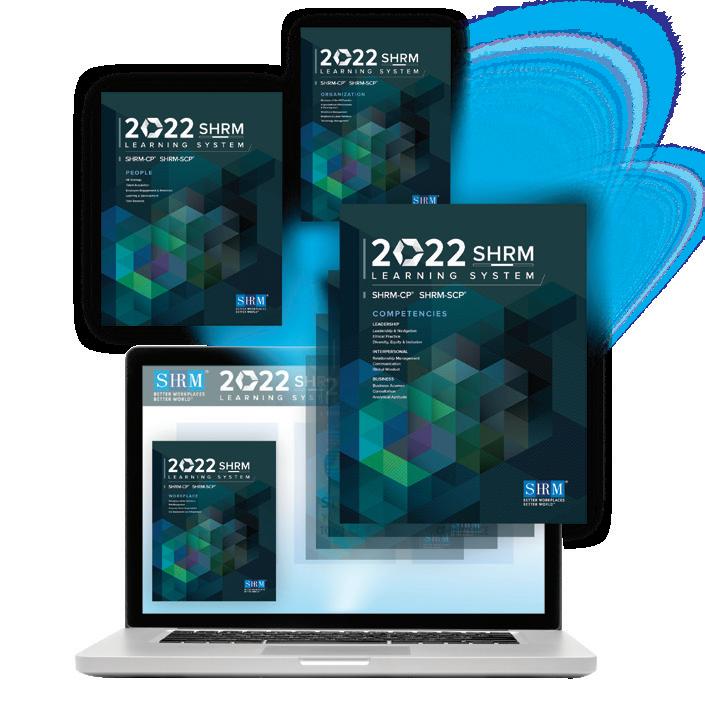
Jessica
Kellan
Amanda


333 West Vine Street | Suite 1720 Lexington, KY 40507 | 859.317.7970
Inman Shareholder jinman@littler.com 859.317.7973
Mayo Shareholder lmayo@littler.com 859.317.7974
J. LaCourse Associate mlacourse@littler.com 859.317.7972
Wimsatt Associate jwimsatt@littler.com 859.317.7983
Coffey Associate kcoffey@littler.com 859.317.7985
Combs Associate alcombs@littler.com 859.317.7971 We’re local, everywhere. Local laws, legal communities, customs, and cultures powerfully influence how businesses work, how workplaces function, and how employment issues are resolved.
we’ve been building a law firm with teams
over the world, bringing deep understanding and vital insight to the issues your business is facing, wherever it’s located. Presents Affordable Online SHRM-CP® | SHRM-SCP® Certification Exam Prep Class Online classes begin October 19, 2022 and will meet twice per week for 12 weeks on Monday and Wednesday evenings from 6:00 PM to 7:00 PM. Contact cynthia@hrprosmagazine.com OR visit our website at www.hrprofessionalsmagazine.com The total cost of the SHRM-CP® | SHRM-SCP® Online Certification Exam Prep Class is $995 (plus $25.00 shipping) You may pay by PayPal, credit card or check. 2022 Fall Exam Window December 1, 2022 - February 15, 2023 For more information visit shrmcertification.org Deadline to register is October 12, 2022 SHRM Learning System® Participant Materials 37www.HRProfessionalsMagazine.com
Three Oft-Overlooked Elements of the Employee ExperienceSAFETY, TRUST, and WIIFM
By TIM KECK
“I quit.”
“What!? You can’t quit. You’re a senior manager. We need you!”
“I’m sorry. I just can’t work under these circumstances anymore.”
“What circumstances?”
“I love this company, but I am afraid to come to work.”
“Because of the sidewalk gauntlet you have to walk through to get to the door?”
“Yes. My anxiety is through the roof because those people are so unpredictable.”
“I’m sorry we haven’t done more to make you feel safe.”
“Me too.”
(True story.)
Nothing is on the minds of human resource professionals more than creating a great employee experience. Beer on tap, elder care support, paragliding lessons; you name it, companies are trying it. And some of it is working. When employees see their organization trying so hard to show their appreciation, they tend to get more engaged.
But sometimes it doesn’t work.
In our experience, these failures are largely because the company missed the mark in three fundamental areas: safety, trust, and WIIFM.
1. SAFETY
From research by Maslow and others, we know the four things that drive our behavior. The first, and most important, is what we call the bDrive, which refers to biological survival. This foundational element must be present before any of the others can come into play. bDrive elements are simple: Food, Water, Shelter, Safety. Without these things being covered, nothing else really matters.
The television series Naked and Afraid demonstrates this principal in every episode. Contestants don’t spend much time quoting Shakespeare or working on
the Pythagorean theorem. No, they mostly try to find potable water, build a makeshift shelter, and scrounge up some grub.
We intuitively know feeling safe is mandatory but tend to take it for granted. And while your employees aren’t likely to be dodging crocodiles in the swamp, they face a variety of stressors that take their mind off their job. Domestic troubles, mental health challenges, work requirements, unhealthy relationships, economic challenges, political division, and mass murder to name a few.
The most basic first step in creating a great employee experience is ensuring that your people both are safe and feel safe. And although it’s a statistical rarity, active shooter incidents are on everyone’s mind. How do we know this? Polling our clients and the fact that our training seminars in this area have exploded in popularity the last two years. In one recent survey, 82% of employees said the possibility of a violent act was regularly on their mind.
The best companies are taking steps to prevent an active shooter event, to mitigate against one should it occur, and to help their people survive in a worst-case scenario. They’re doing that in three ways.
1. Providing training for all employees in recognizing warning signs, surviving an event, and how to save a wounded friend’s life. This can be accomplished in as little as 20 minutes, although many clients devote a couple of hours.
2. Hosting advanced training on this topic for leaders, safety, security, and human resources. Leaders truly are the key to preventing these incidents, so they should develop a deeper understanding of this phenomenon. This usually takes 2-4 hours.
3. Conducting an Active Shooter Vulnerability Assessment to understand just how much risk you face and receive simple recommendations that make everyone safer.
The threat of violence has permeated our atmosphere. Random killings, civil unrest, and a pandemic of the unhoused living on the streets of our cities have combined to create a dangerous circumstance for many workers. As an employer, we cannot afford to ignore these existential threats. Simply acknowledging the elephant in the room
and showing employees you’re taking their safety seriously goes a long way toward making their experience a positive one. If we don’t take action on this item, all of our employee experience initiatives will fall flat.
2. TRUST
Workers today want to be a part of something bigger than themselves. Part of a team. That feeling of belonging is key to a positive experience. But best-selling author Patrick Lencioni famously asserts that there is no teamwork without trust. If your people don’t feel they can trust their boss, HR, company leadership, and one another, their experience will fall short.
In the field of protection, trust reigns supreme. At the time of this writing, we are actively managing threats against numerous people across the nation. For example:
• A physician threatened by a mentally ill patient who is sending letters by courier to the doctor’s home.
• A controversial, high-profile, political candidate threatened with unspeakable violence by an idealogue.
• A domestic violence victim whose estranged spouse is threatening to murder her at work.
Each of these people, and their organizations, have trusted us with their safety. And we have never let them down. Why would they trust us, quite literally, with their lives?
Because they got to know us.
You see, we don’t trust people we don’t know. It’s the difference between your best friend and a hitch hiker. You know your BFF because you took the time to get to know them. You asked questions. You listened. You shared experiences. You kept confidentialities. You did what you said you would do.
The hitch hiker you see on the side of the road might be the nicest person you’ve ever met. Yet you don’t pick them up. Why? Because you don’t know them.
For most people, relationships at work are closer to hitch hiker than BFF.
To create a great employee experience, you must increase trust. Here’s how:
38 www.HRProfessionalsMagazine.com
1. Leaders must set the bar high by getting to know their teams. A great boss eats lunch with their people and encourages them to speak about themselves and their personal lives. Then she listens and shows care and concern without judgement.

2. Team members should be encouraged to get to know one another at a deeper level than where they interact on an org chart. Rather than just facilitating a bike ride together after work, teams might stop at a coffee shop and try to guess what their coworkers prefer to drink.
3. Create initiatives that drive more and deeper interaction between associates from top to bottom. We worked with a large financial group to develop a “What’s your Q?” initiative. Everyone wore a sticker or button or t-shirt with that question on it. The “Q” stood for quirk, and it gave everyone an excuse, that became almost a mandate, to ask and offer details about one of the weird things that made them unique.
Building relationships must be a key component in any employee experience effort. Fortunately, it doesn’t have to be costly or time-consuming to accomplish. It
does have to be a priority though, modeled by the organization’s leaders to be effective.
3. WIIFM
We tend to be selfish creatures. We want what we want when we want it and how we want it. We want our trendy iced coffee, 12 pumps [sugar-free] vanilla, 12 pumps [sugar-free] hazelnut, 12 pumps [sugar-free] caramel, 5 pumps skinny mocha, a splash of soy, coffee to the star on the siren's head, ice, double-blended morning cup of joe. (That’s an actual order.)
In a world where your employees are accustomed to getting anything they want, treating them like a generic part of your machine simply won’t work. Your focus should be on discovering their unique talents and how your organization can benefit from them.
For an employee of any age, but especially the newest members of your workforce, a job where they get to do what they do best is a core component of a great employee experience. In fact, any plan that doesn’t answer the question “What’s in It for Me?” (WIIFM) will prove
Unfortunately, for a certain percentage of your employees, the thing that must be “in it” for them is support for everything from mental health to domestic violence. The days of cutting an associate loose because they need support for extra-curricular issues are long gone. Referrals, coaching, and caring are all part of the mix in making employees feel like their organization truly cares about them.
As you work toward building a killer employee experience, don’t forget about the foundational need for feeling safe, trusting those around you, and being treated as an individual – especially when you’re battling big problems in your life. Without establishing these three things, your employee experience plans will crumble before your very eyes. And of course, if you need any help making your people feel safe, contact us at SafeHaven Security Group at 844-SAFEGROUP or SafeHavenSecurityGroup.com.
SafeHaven Security Group, LLC provides Threat Assessment and Management Consulting, Active Shooter training programs, and professional uniformed security officers for organizations across


ACTIVE SHOOTER TRAINING THREAT TRAINING HR PROS LOVE • Legally Defensible Content ACTIVE SHOOTER TRAINING THREAT TRAINING HR PROS LOVE • Legally Defensible Content • Loved by Participants • Taught by Experts • Practical and Empowering • Live, Webinars, or Animated Video SAFEHAVENSECURITYGROUP.com 39www.HRProfessionalsMagazine.com
MEET MEET
Shirley Rijkse, MBA, SHRM-SCP, DTM

President of the North Carolina
SHRM State Council
Shirley began her volunteer role with SHRM in her local chapter, Central Carolina SHRM, as Program Director. She went on to serve in a variety of roles including President for multiple terms. Under her leadership, the chapter achieved Platinum Excel Award Status. The chapter has also won numerous community service awards. Shirley is most proud of co-chairing the 2018 NCSHRM State Conference, which allowed her chapter to fund a permanent HR Scholarship with the local community college.
As a member of NC State Council, Shirley has served on many committees and chaired College Relations. Additionally, she led as District Director and President-Elect. Shirley encourages others to create SHRM relationships, which offer opportunities to grow and lead in this dynamic volunteer organization. Shirley is in the first year of a two-year term as President of NCSHRM.
Shirley is the Human Resources Lead for the Business Technologies Department at Central Carolina Community College where she is an Advisor to student clubs for HR, Business, and Toastmasters. She holds many certifications that enhance her proficiencies. She also is the SHRM Educational Coordinator for the college. Shirley is very proud for the college to have the first HR Apprenticeship Program in NC. Her skills in leadership and training were developed through experiences in human resources, business management and ownership, senior retirement/assisted living administration, vocational rehabilitation, medical/dental office management, and cosmetology. As an advocate of education and servant leadership, Shirley participates and serves in collaborative activities supporting community growth and stability. She especially enjoys being a voice for children as a Guardian Ad Litem.
EDUCATION:
MBA, Data Driven Leadership (post grad)-Franklin University, Columbus, Ohio
SHRM-Inclusive Workplace Culture Specialty Credential Choose to Win Coach, Ziglar Inc. Distinguished Toastmaster
40 www.HRProfessionalsMagazine.com
State Conference, October 12-14, 2022
State Conference, October 12-14, 2022
Benton Convention Center , Winston -Salem, NC
Benton Convention Center, Winston-Salem, NC
Register here: https://ncshrm.com/2022-conference-registration/
Register here: https://ncshrm.com/2022-conference-registration/ Only $699.00 in person/virtual registration

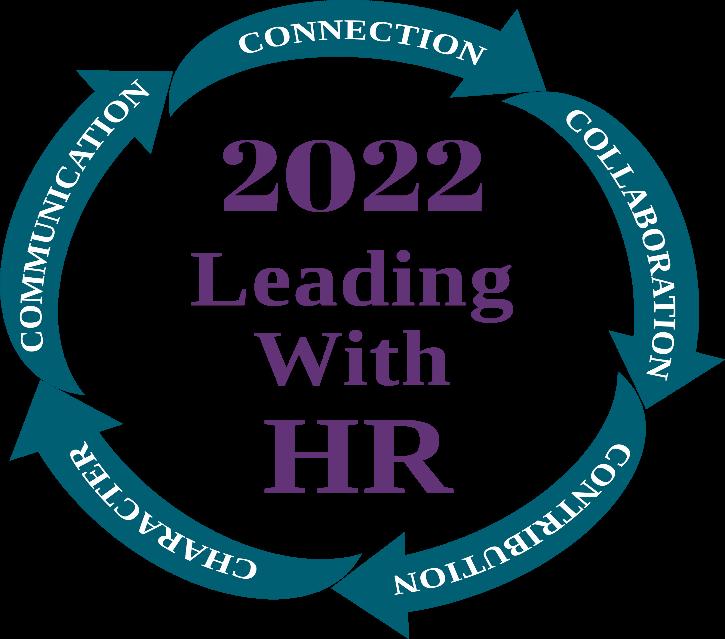
$799.00 in person / $499.00 on demand (virtual)
$175.00 for students
$175.00 for students
Featured speakers and sessions to be announced summer 2022.
Featured speakers and sessions to be announced summer 2022.
Over 30 SHRM PDC’s available at the conference and on demand resources.
Over 30 SHRM PDC’s available at the conference and on-demand resources.
Special Guest Speaker
Special Guest Speaker
SHRM President & CEO, Johnny C. Taylor, Jr.
SHRM President & CEO, Johnny C. Taylor, Jr.

41www.HRProfessionalsMagazine.com
MEET MEET
Jeff Luttrell, SHRM-SCP, SPHR
2022 NCSHRM Conference Chair
Jeff is Global Vice President of Talent Acquisition at Atento. Previously, He held leadership roles in Talent Acquisition and Staffing with Alorica, Xerox and Kelly Services.

He has over 20 years of recruitment experience in both staffing industry and corporate recruiting including international, executive, and professional recruiting. He has led teams in the US, Canada, EMEA and Latin America.
Jeff lives in Asheville, NC and has served in many volunteer roles such as SHRM Southeast Region MAC Board Member, President and Board member with Raleigh Metro SHRM and served as Director of the NCSHRM State Council. He has served on SHRM HR Disciplines, Talent Acquisition, Global, Diversity and Inclusion expertise panels and currently on the Together Forward at Work Taskforce since 2020. He regularly speaks on Talent and DEI across the US.
Jeff is a true Tar Heel having graduated from UNC Chapel Hill with a degree in Journalism. He received an HR Management Certificate from Duke University and possesses SPHR and SHRM-SCP certifications.
42 www.HRProfessionalsMagazine.com
business.ecu.edu/grad/mba


 (L-R) Esha Iupe, Director of Client Services at HUB International; Lisa Lampron, Regional Sales Director, Southeast at Alight Benefits Guidance; Ryan Nelson , Chief Financial Officer at Saint Francis Healthcare; Preston Cox , Senior Account Executive at Unum; Christy Showalter , Sr. Employee Benefits Compliance Officer at McGriff
The September 2022 Luncheon Meeting of the Greater Employee Benefits Council was held at the Crescent Club in Memphis September 8. The topic was Healthcare and Pricing Transparency in 2022. Christy Showalter, Sr. Employee Benefits Compliance Officer at McGriff, and Ryan Nelson, CFO at Saint Francis Healthcare, led the panel discussion.
(L-R) Esha Iupe, Director of Client Services at HUB International; Lisa Lampron, Regional Sales Director, Southeast at Alight Benefits Guidance; Ryan Nelson , Chief Financial Officer at Saint Francis Healthcare; Preston Cox , Senior Account Executive at Unum; Christy Showalter , Sr. Employee Benefits Compliance Officer at McGriff
The September 2022 Luncheon Meeting of the Greater Employee Benefits Council was held at the Crescent Club in Memphis September 8. The topic was Healthcare and Pricing Transparency in 2022. Christy Showalter, Sr. Employee Benefits Compliance Officer at McGriff, and Ryan Nelson, CFO at Saint Francis Healthcare, led the panel discussion.
43www.HRProfessionalsMagazine.com
Connect with Your Peers Learn from and quickly connect with attendees whose professional backgrounds and interests are similar to your own. Make valuable professional connections.


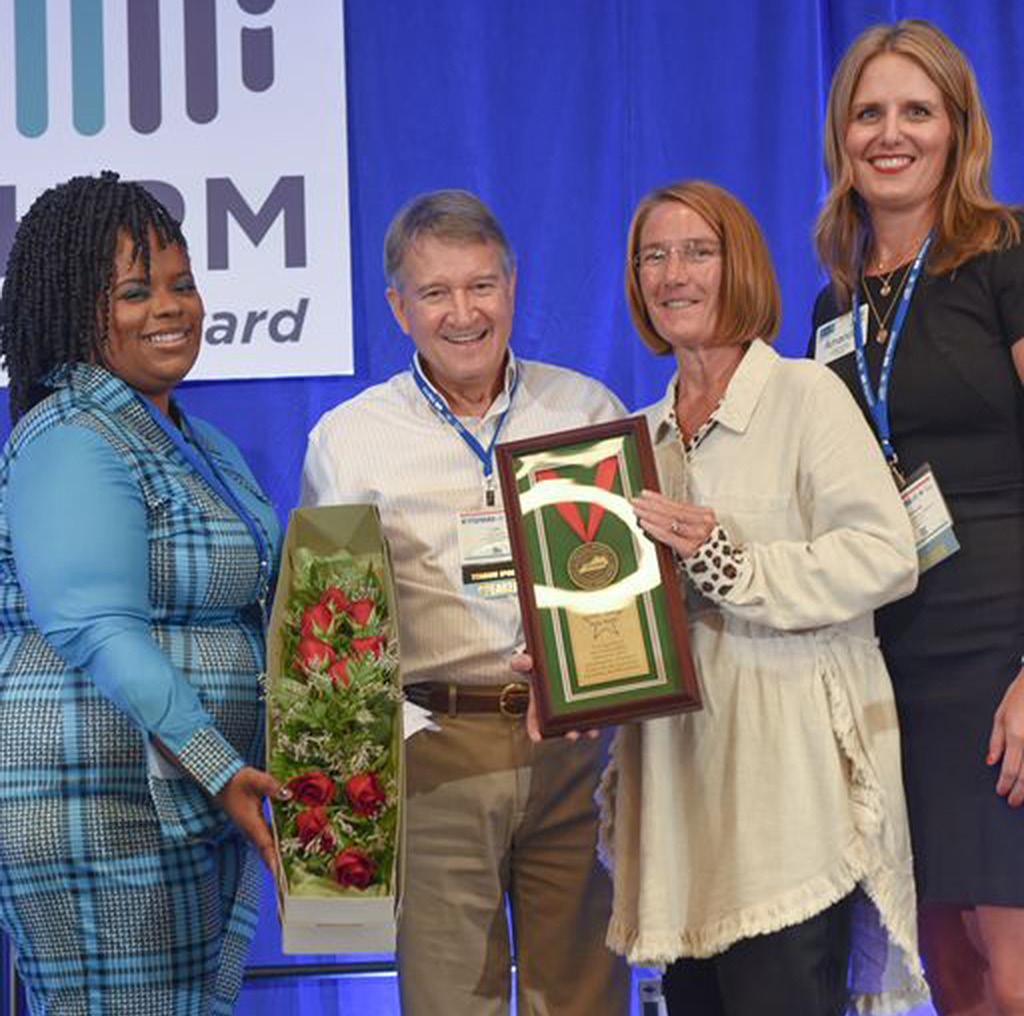


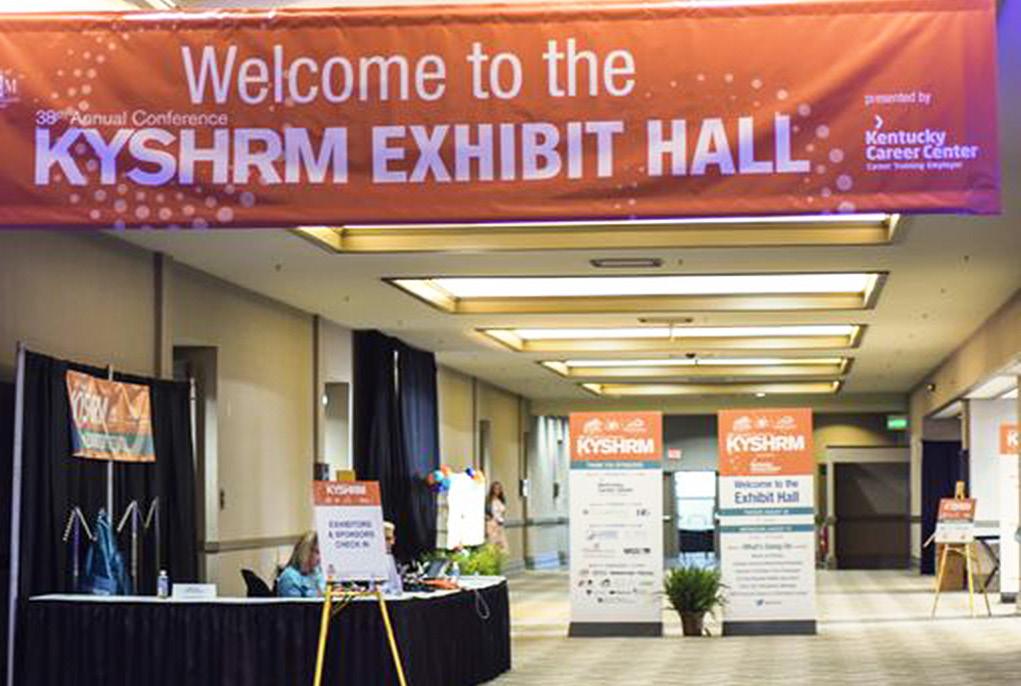
Learning that Fits You Session tracks offer you the opportunity to focus on topics most important to you and your job. Materials and handouts for all sessions are available to all attendees, whether you attended the particular session or not and can be watched any time, day or night. Sessions are available via the conference app. Tracks include: Business Management
and
This year’s conference offers the

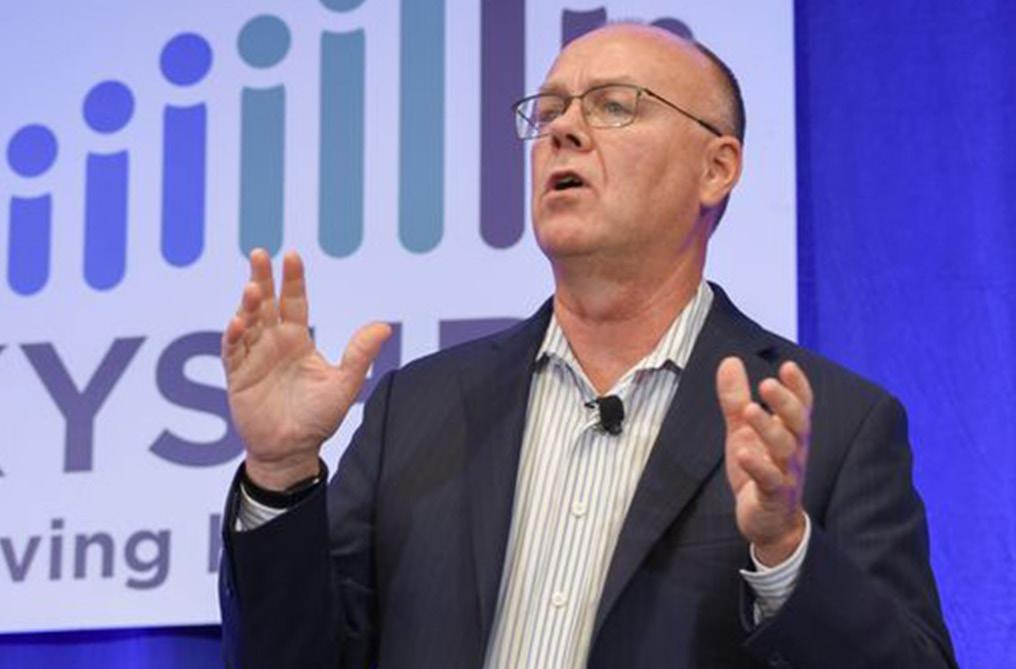
and
and
Strategy, Management, Motivation, Human Resource Law, Benefits & Compensation,
Diversity & Inclusion. Professional Development Earn SHRM and HRCI continuing education credits.
potential to earn up to 13.5 general credit hours and 10.5 strategic credit hours (pending sessions approval). Sponsors & Exhibitors Visit the KYSHRM Conference exhibit hall to find the latest HR resources
connect with 100+ solution provider companies. Connect and learn about products/services from exhibitors
sponsors during breaks, meals and receptions. WWW.KYSHRMCONFERENCE.COM presented by August 30 - September 1, 2022 | Galt House Hotel | Louisville 12:30 p.m. | August 30 Engaging in Difficult Conversations Kenny Yarbrough Associate Vice Chancellor of Equity, Diversity, Inclusion and Support Programs The University of Wisconsin Whitewater 8:45 a.m. | August 31 A Crisis by the Numbers – Wellbeing in Your Workplace Jim Link, SHRM-SCP Chief Human Resources Officer Society for Human Resource Management 11:45 a.m. | September 1 Elevate Your Game: Moving from Tactical Thinker to Strategic Leader Valerie M. Grubb President Val Grubb & Associates, Ltd. KENTUCKY SOCIETY FOR HUMAN RESOURCE MANAGEMENT ANNOUNCES KEYNOTES The 38th Annual KYSHRM Conference will give you a broad cross-section of all things HR. From the basics every HR professional needs, to offerings for high-level management, to the latest ideas that are changing the workplace landscape, the KYSHRM Conference will help you stay abreast of the current HR landscape and a look into the future. Whether you are new to HR or a seasoned veteran, we have something to engage you and help you advance your career. MEET THE KEYNOTES! HIGHLIGHTS 44 www.HRProfessionalsMagazine.com
HIGHLIGHTS


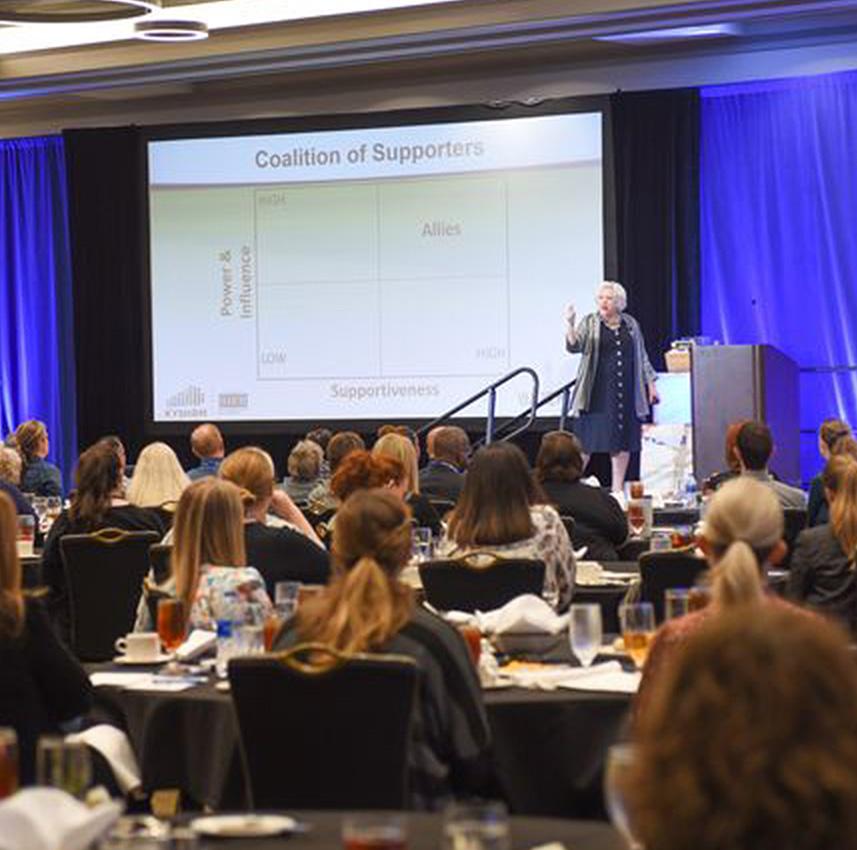
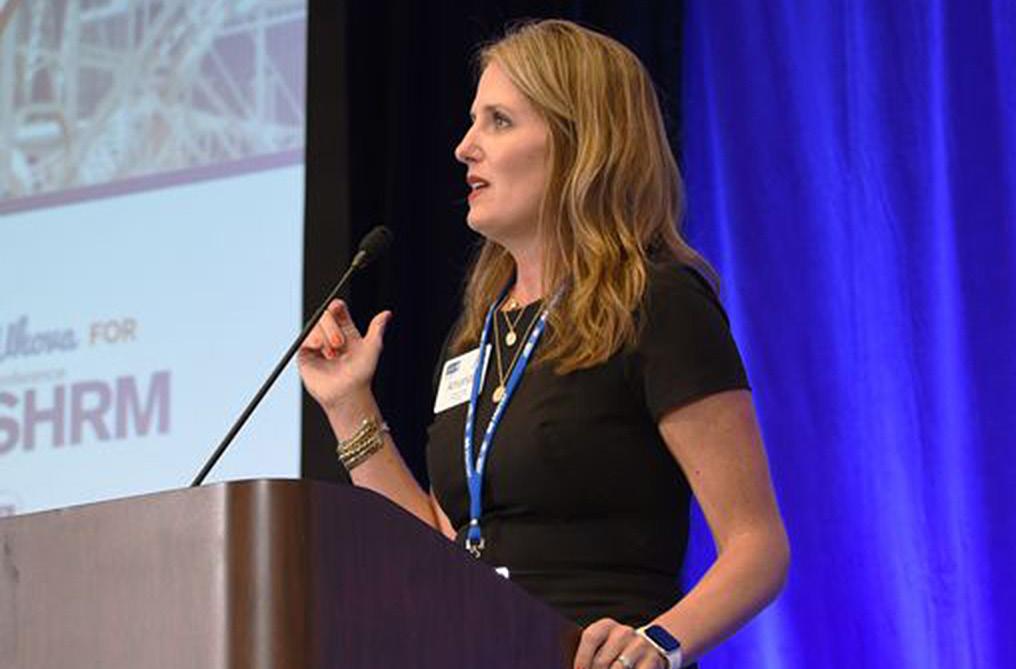


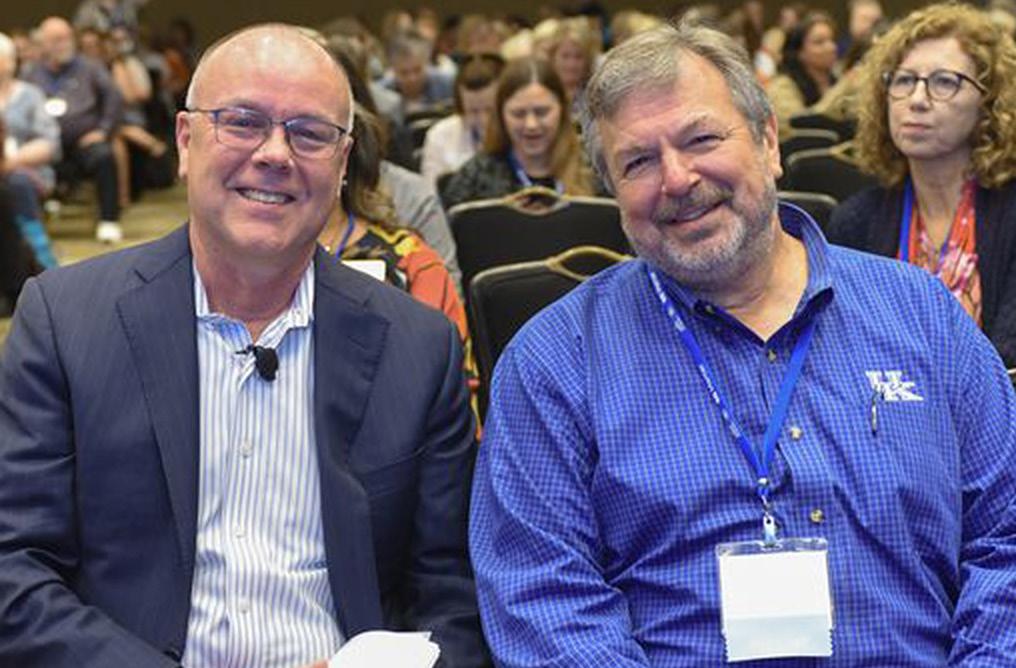
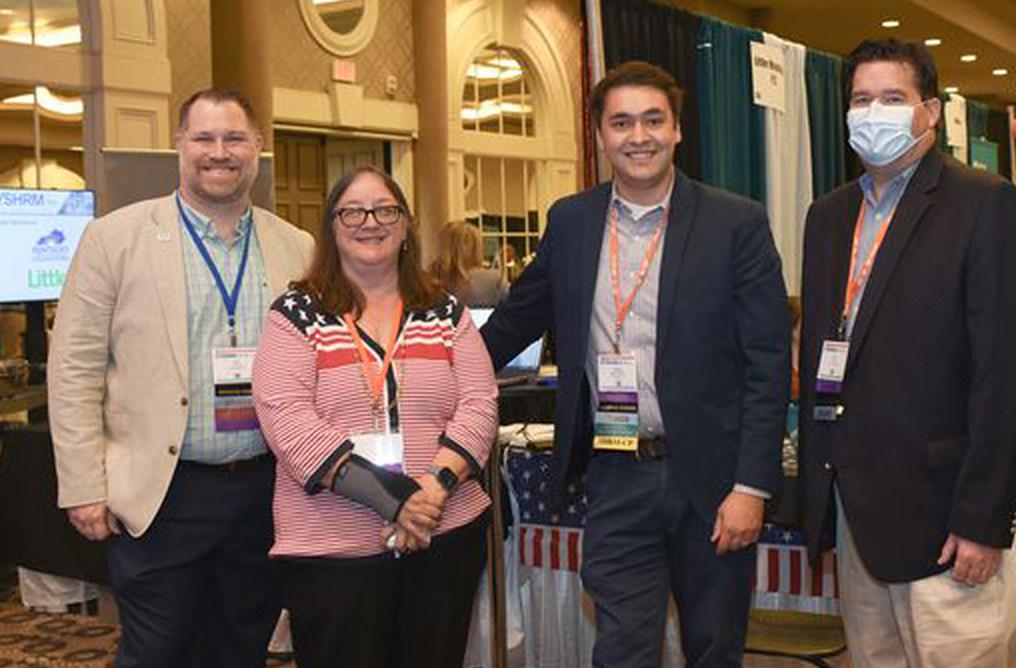

45www.HRProfessionalsMagazine.com
EQUIP YOURSELF TO MANAGE AND LEAD YOUR WORKPLACE TO THE NEXT LEVEL WITH SHRM EDUCATIONAL PROGRAMS.
Sharpen your skills with SHRM this fall. Stay current on the latest trends, hone your expertise and earn professional development credits on the most relevant topics in the industry.

INVEST IN YOUR CAREER AND STRENGTHEN YOUR PROFESSIONAL DEVELOPMENT TO LEAD YOUR TEAM AND ORGANIZATION INTO THE NEW YEAR.
SHRM’s educational and professional development opportunities provide a path for you to become and remain the go-to source of solutions to the people challenges facing today’s companies—big or small.
REGISTER TODAY AT shrm.co/learnthisfall
221637
Yet
Thorough Background Screening: CHECK!
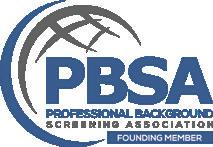
Tightening budgets? Employers don’t have to choose between in-depth background checks and saving money. Data Facts provides both! Our process o ers a progressive approach to background screening. By screening for the most important information first, we can decrease your background screening costs and help you allocate your resources where they’re needed most. Don’t settle for a one-size-fits-all background screening process. Trust Data Facts to implement a comprehensive background check procedure that saves you money without damaging the integrity of your screening practices.
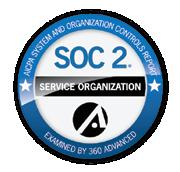




Criminal Records Searches • Verifications • Drug Screening • Credentialing • Driver Services • Monitoring • & Much More! Experienced U.S. Based Support Sta Mobile-Friendly, Customizable Technology Secure & Compliant Hiring Solutions Cost-E ective
47www.HRProfessionalsMagazine.com


YOU’RE READY TO REACH YOUR POTENTIAL. We’re ready to help you. WGU offers more than 60 respected bachelor's and master's degrees—each designed for driven people like you. • ACBSP-accredited degree programs. • HR program fully aligned with SHRM curriculum. • Flat-rate tuition between $7,150 and $9,060 per year. We also let you complete courses online, at your own pace. So you can keep your job while working toward your dream career. Online. Nonpro t. Accredited. Learn more. wgu.edu •ACBSP-accredited •HR •Flat-rate more. wgu.edu/HR












